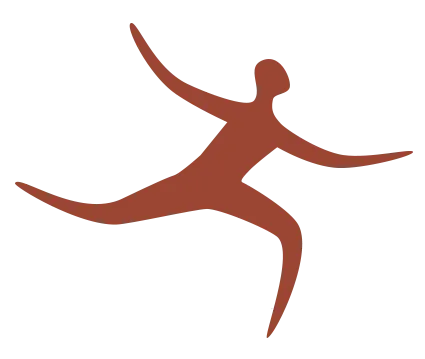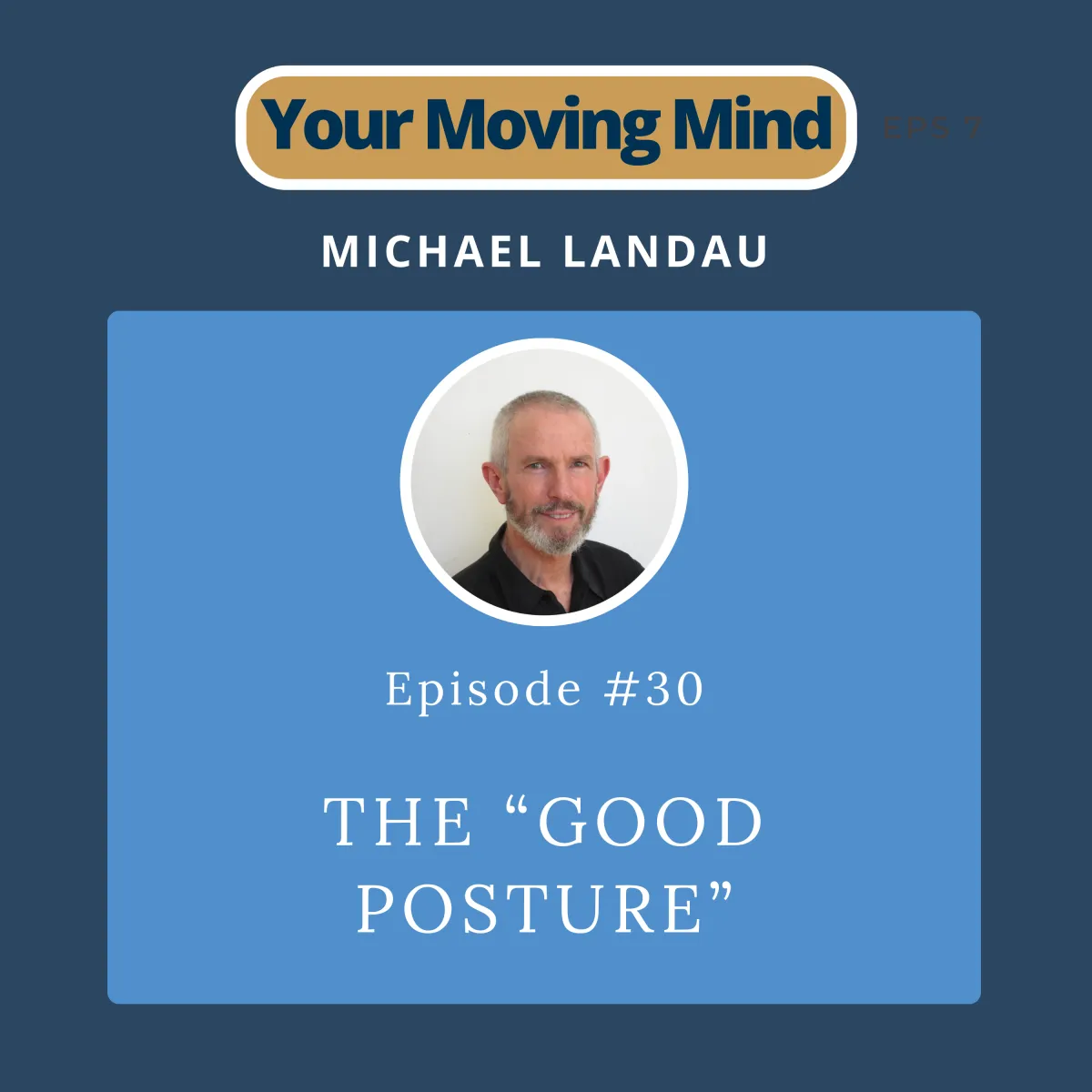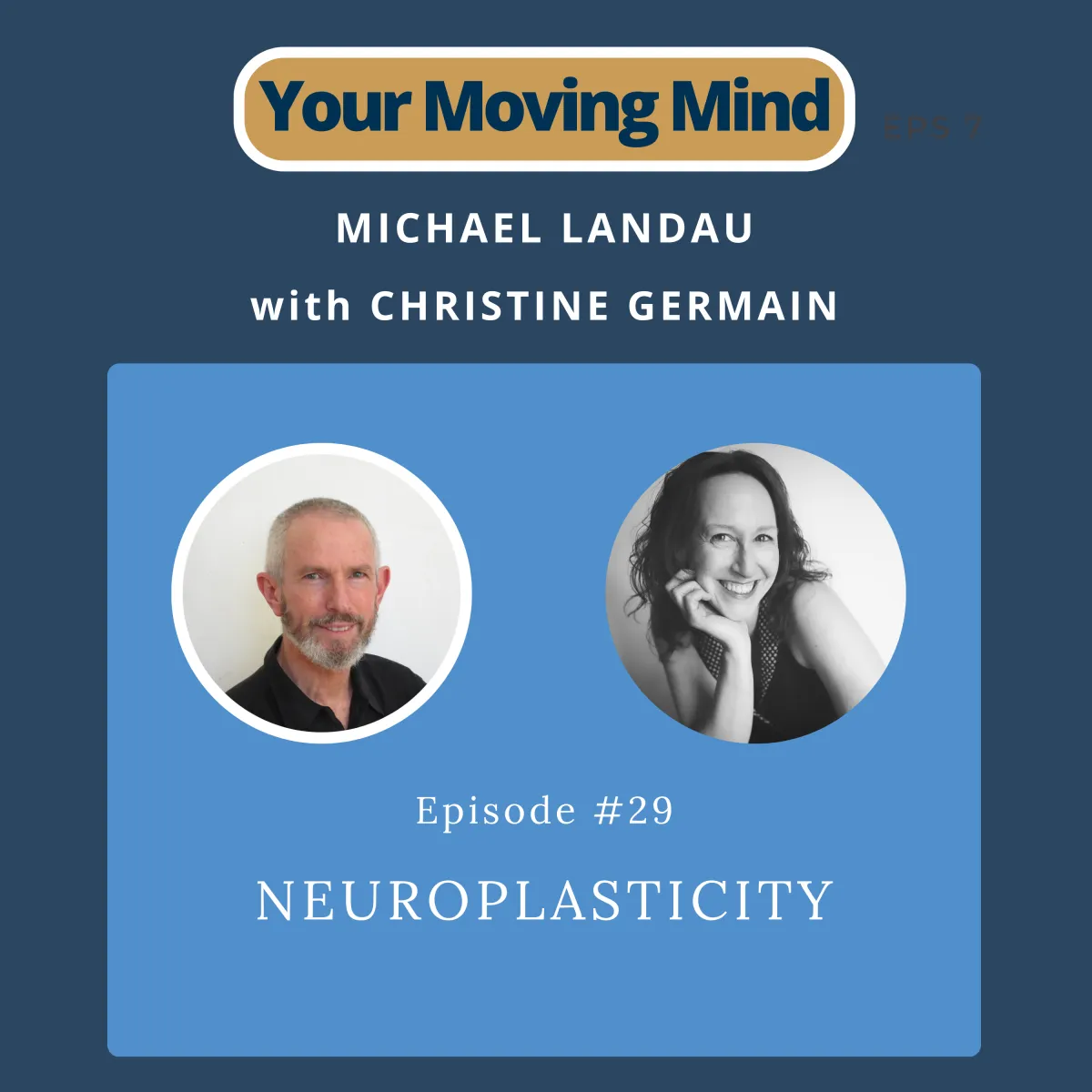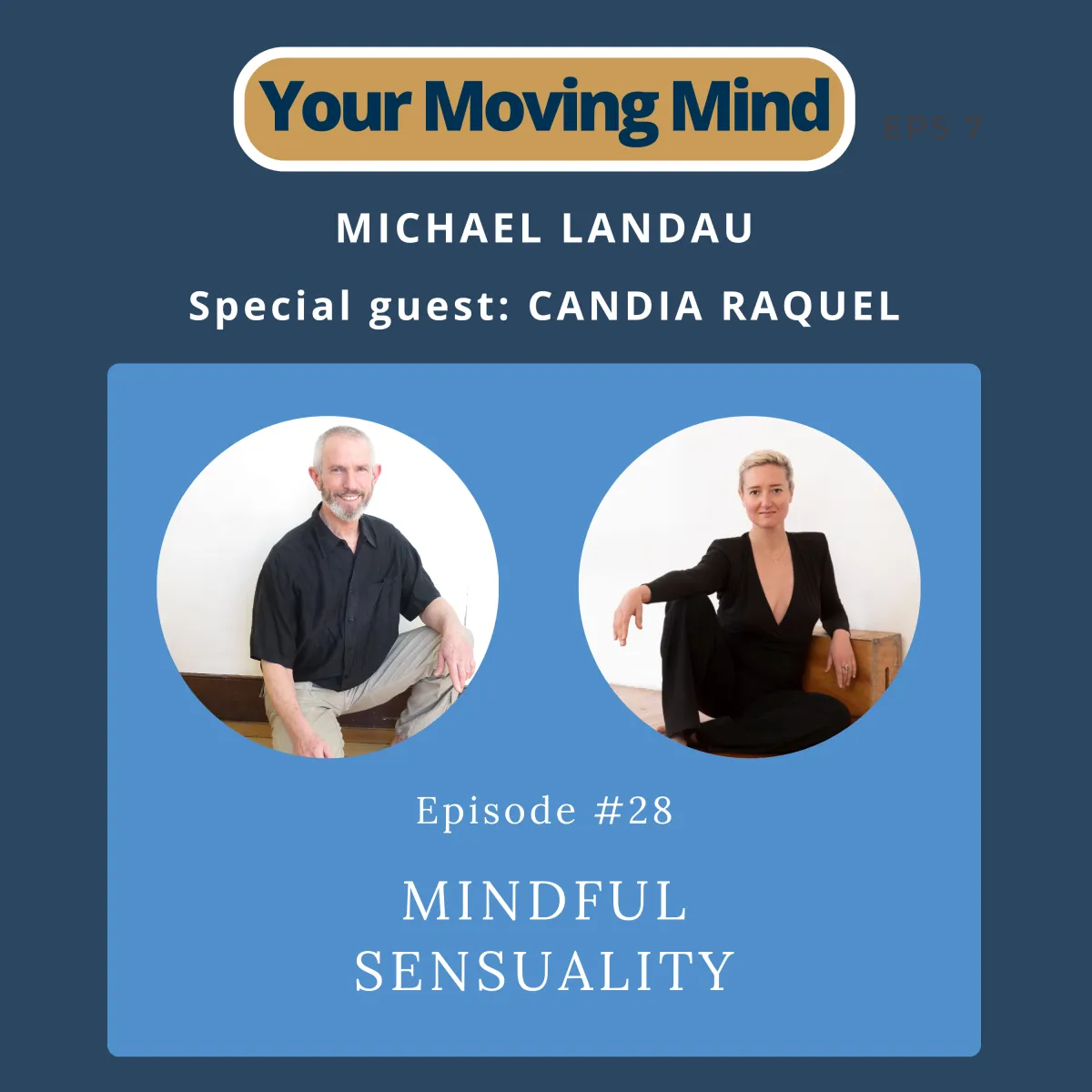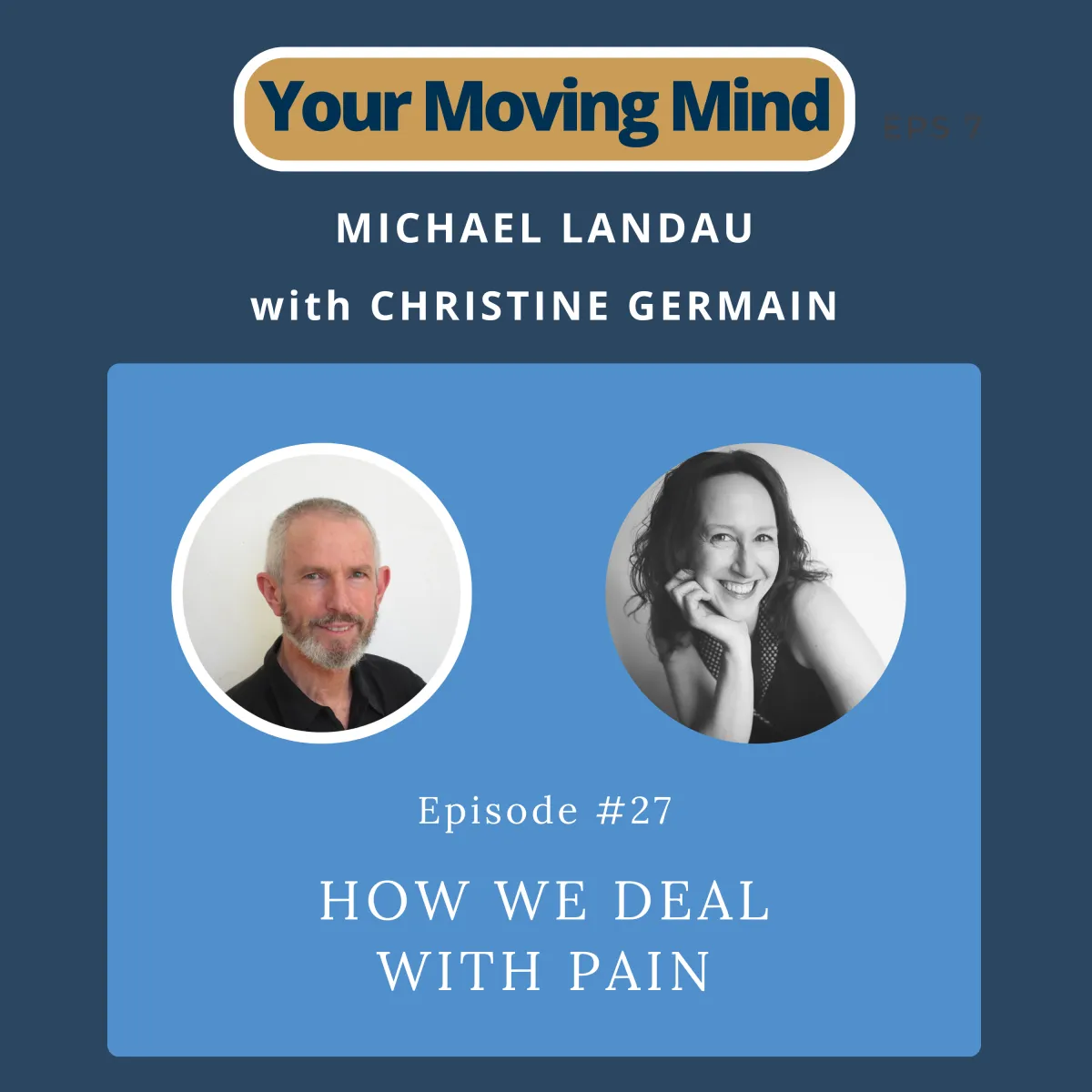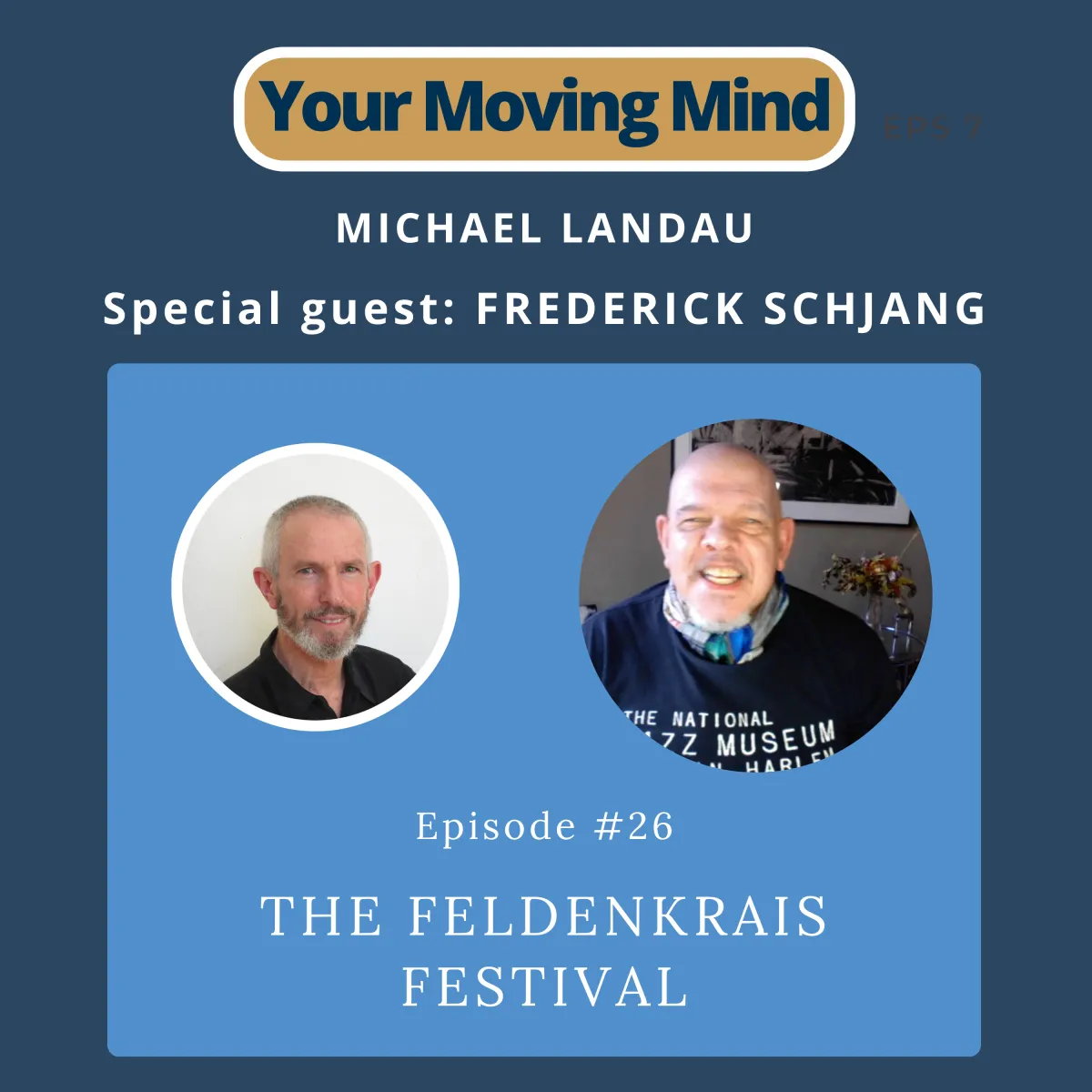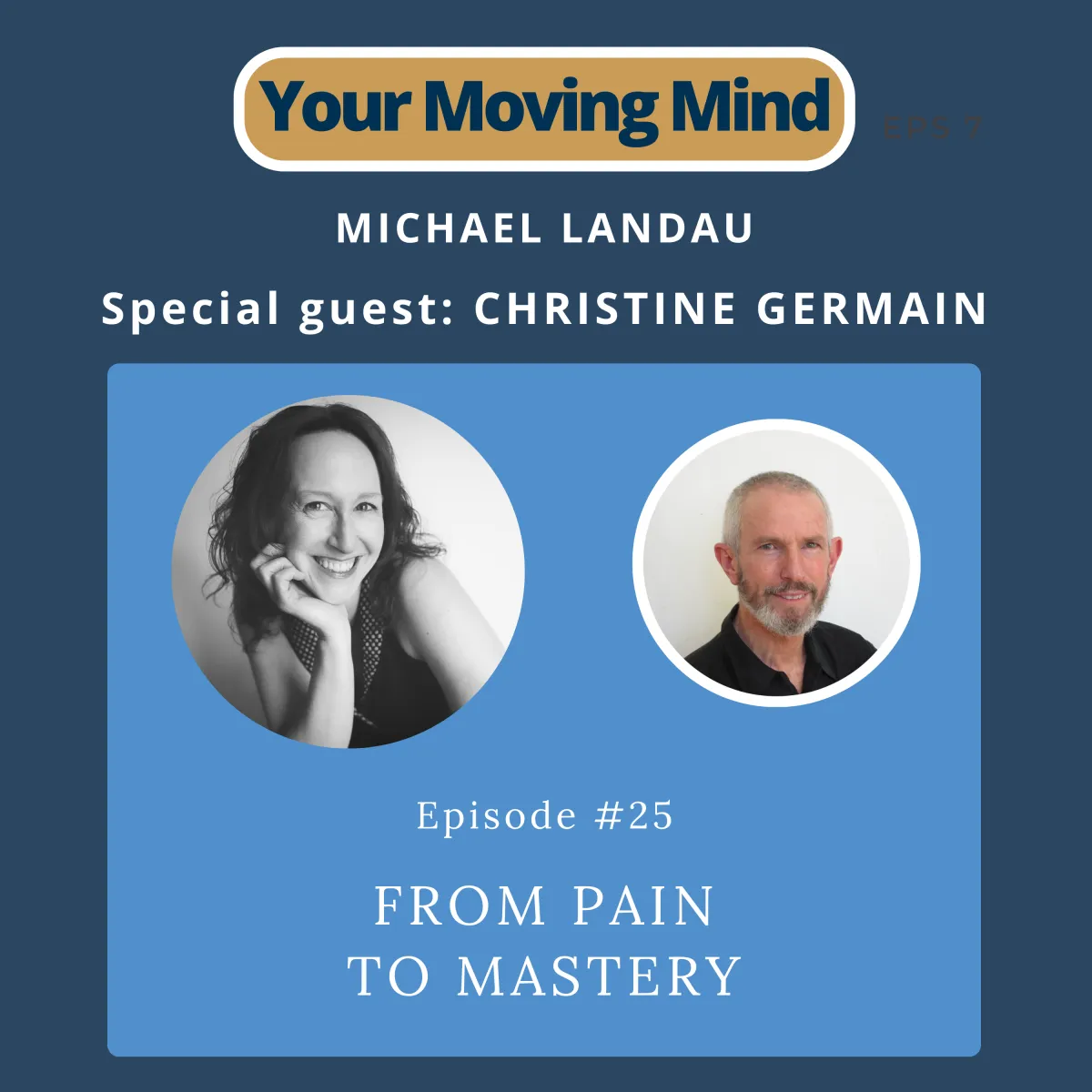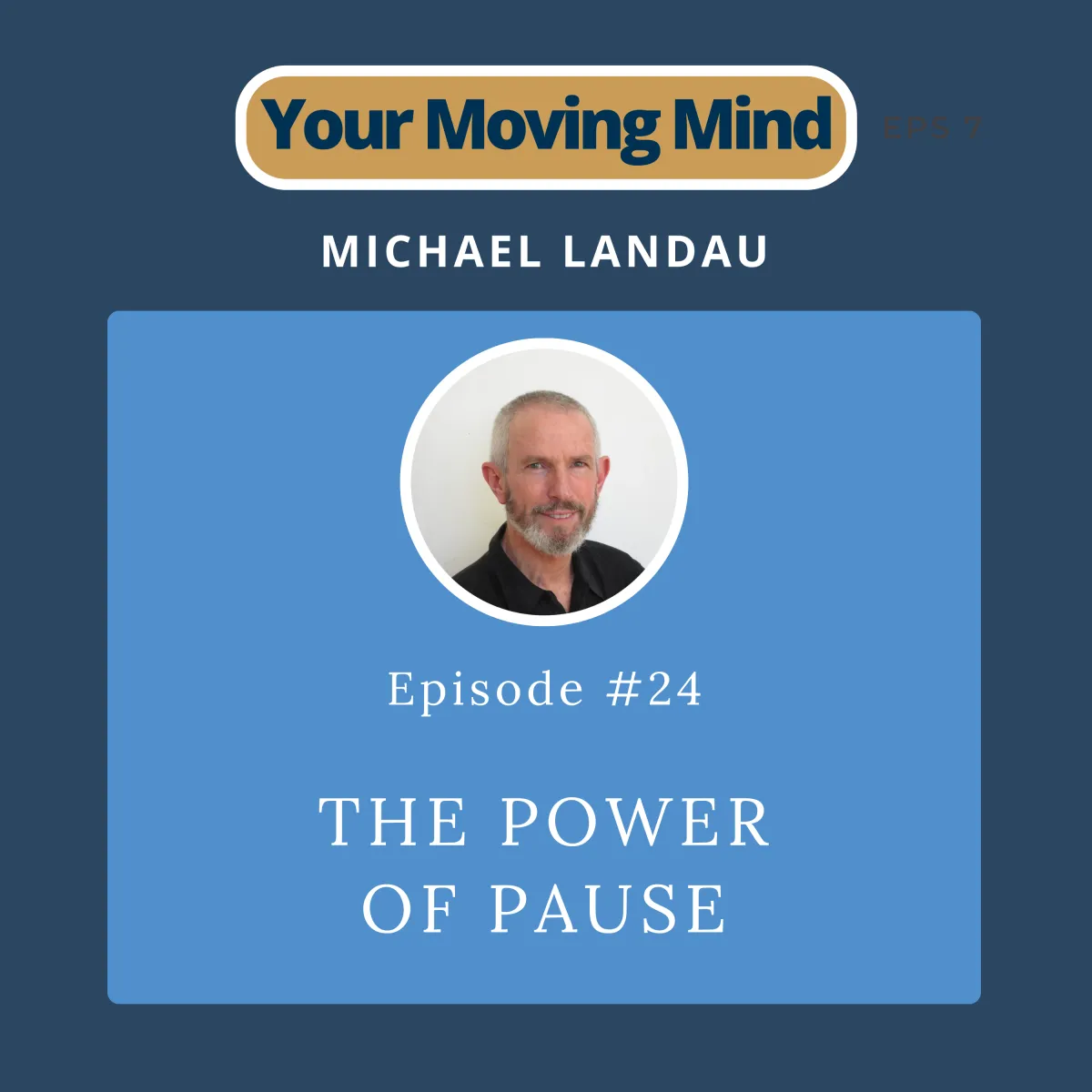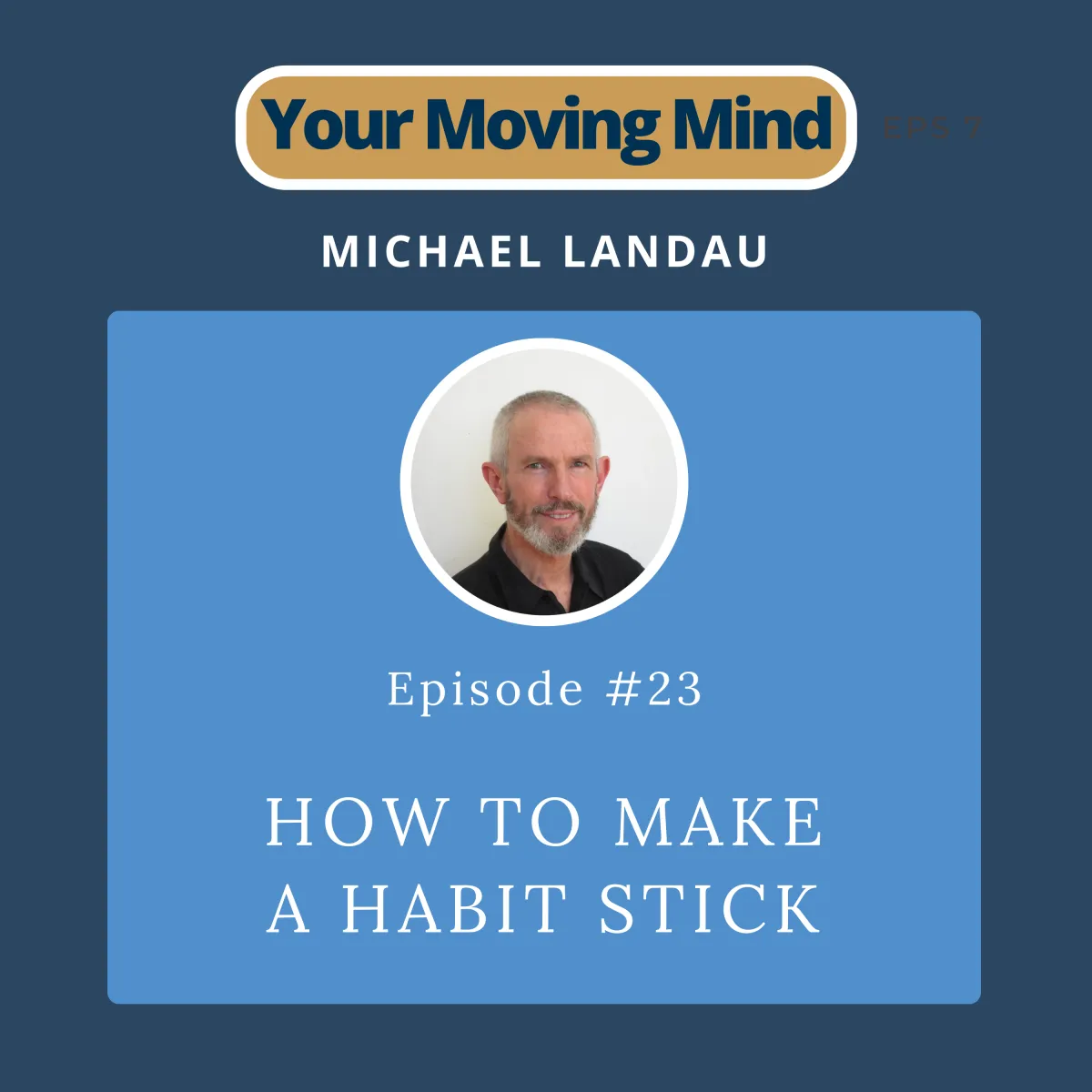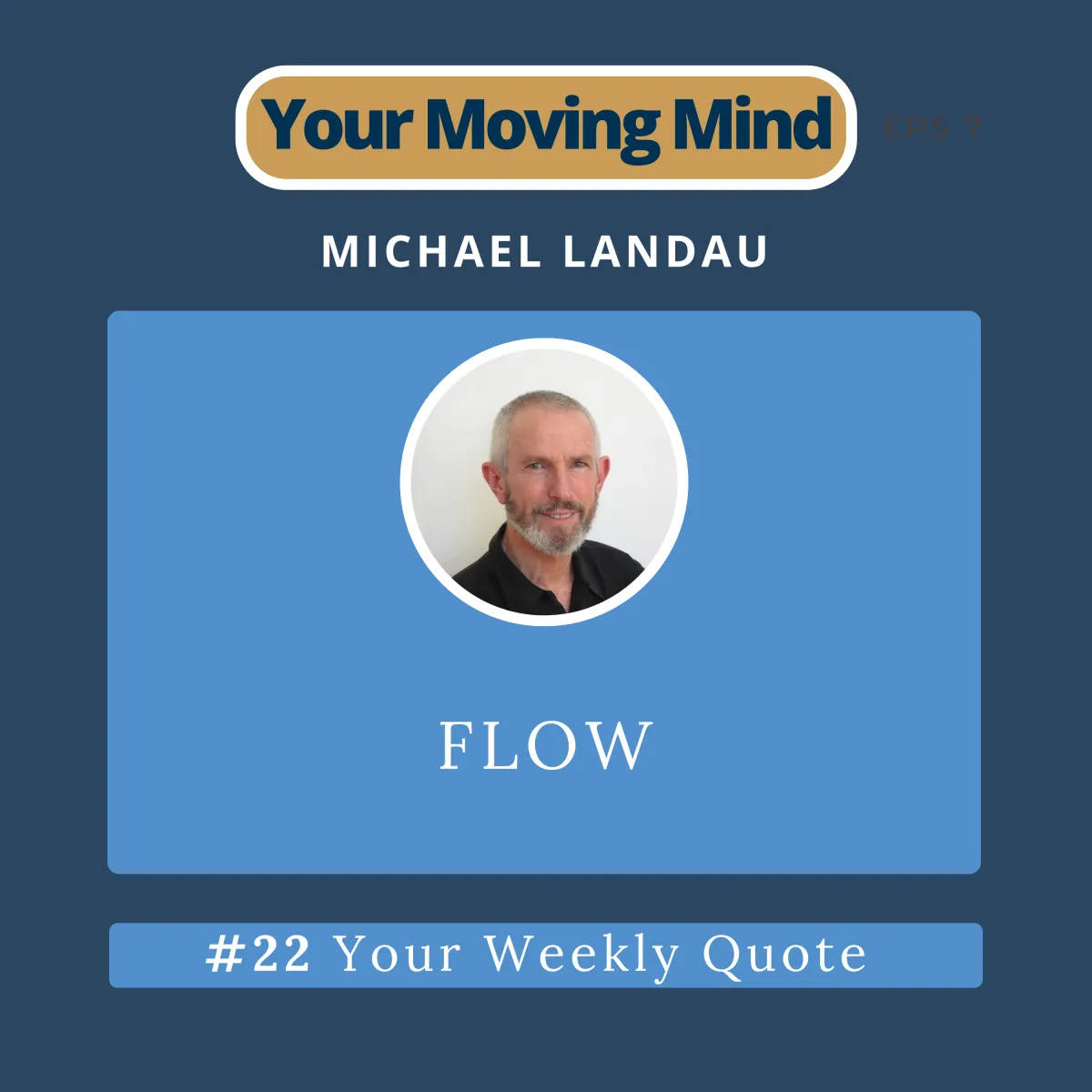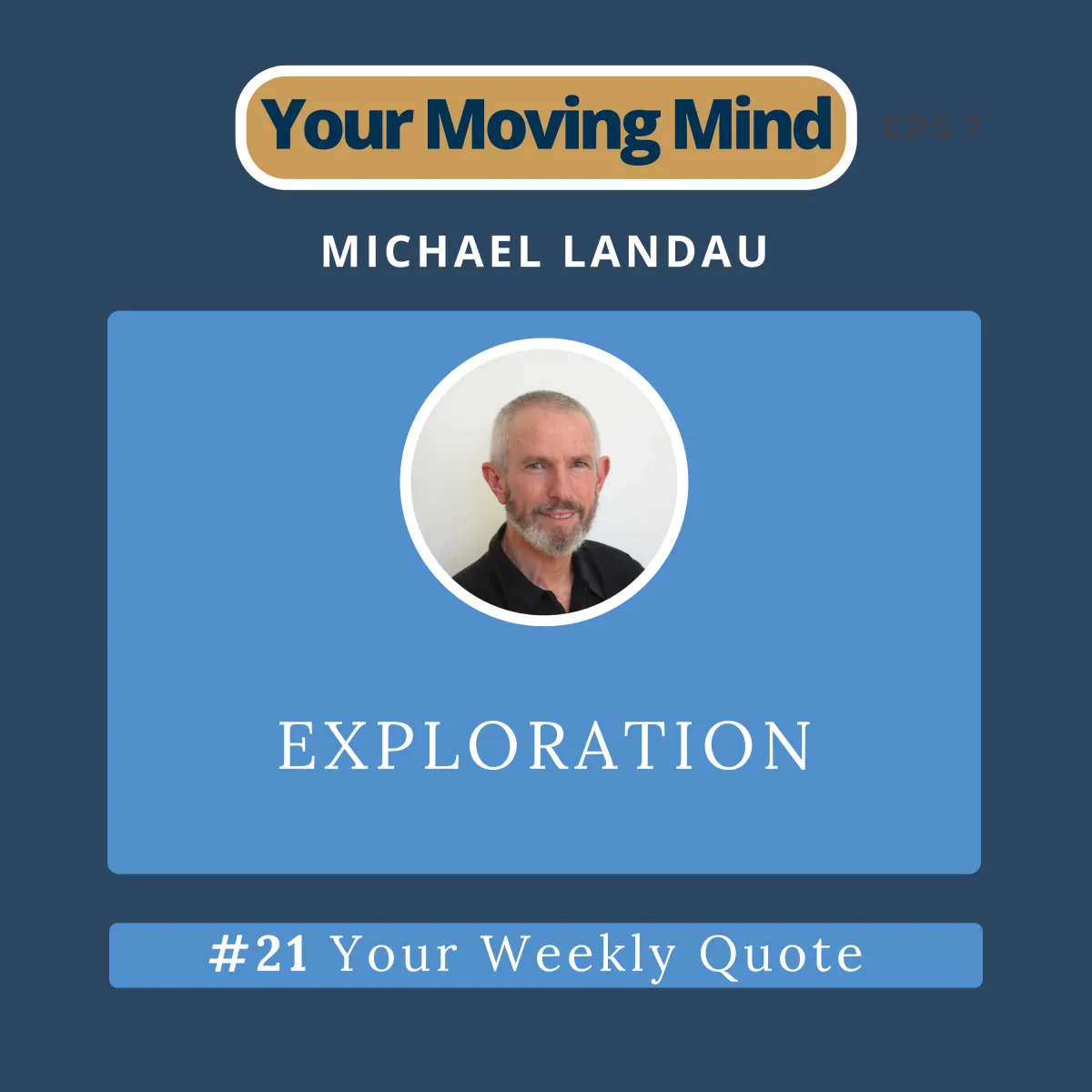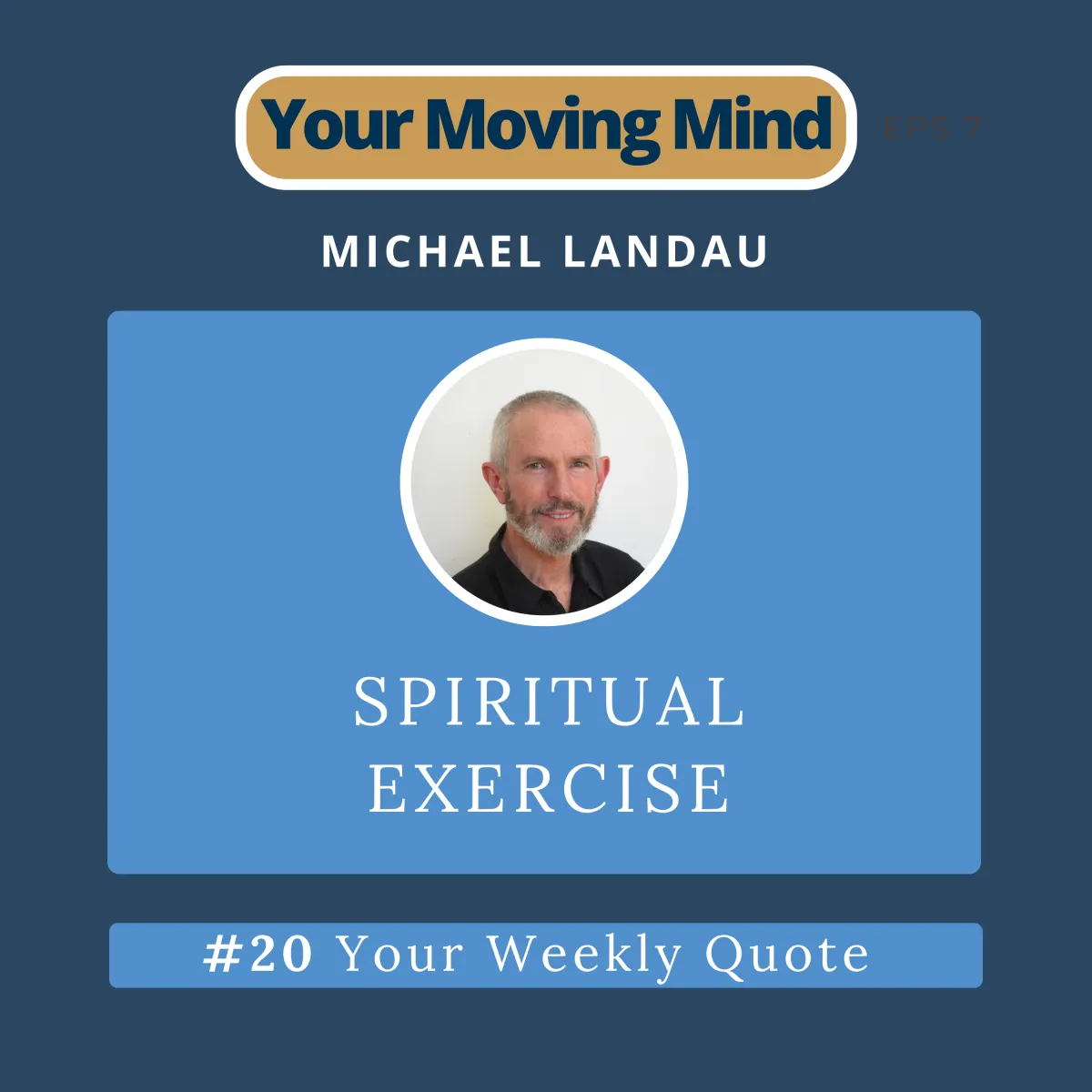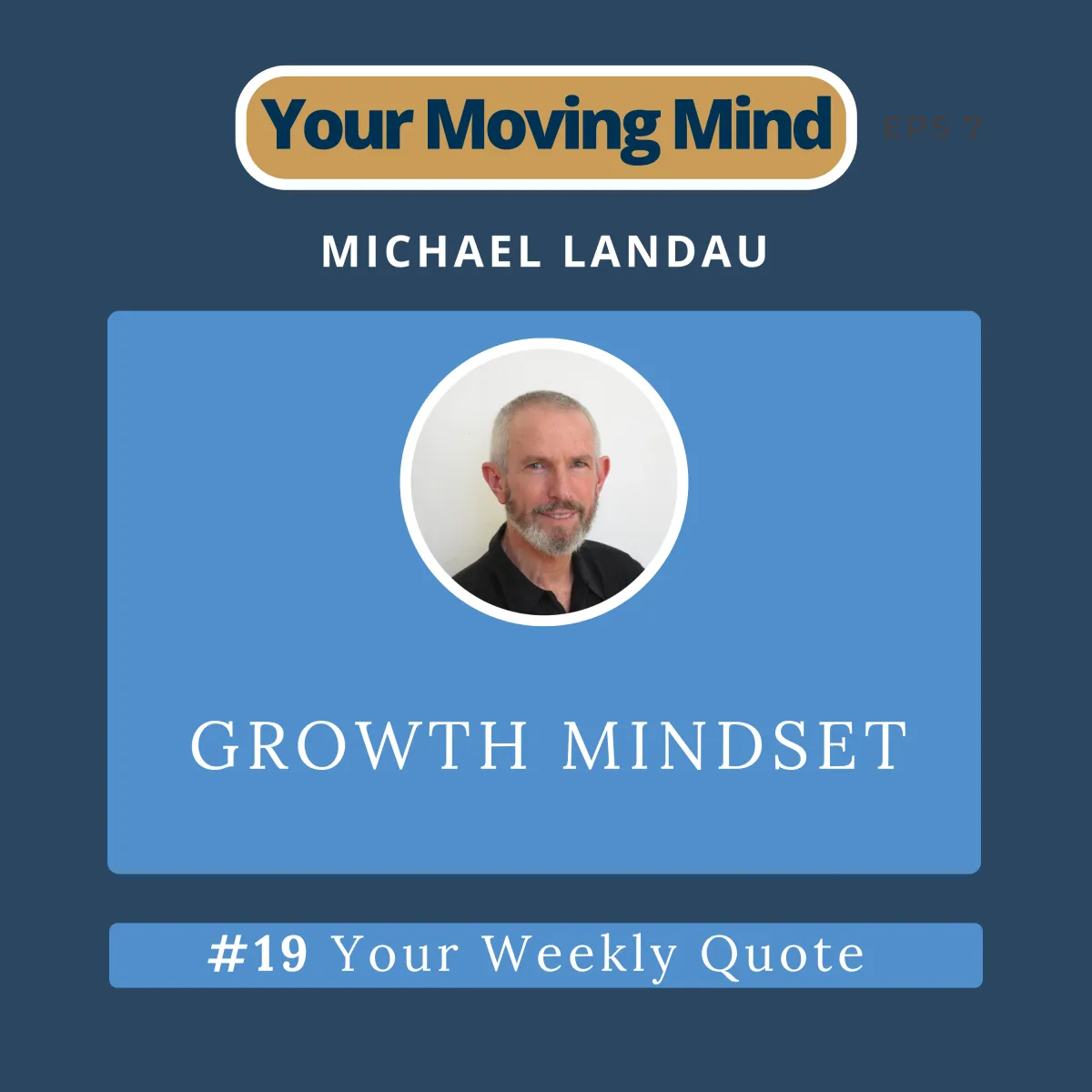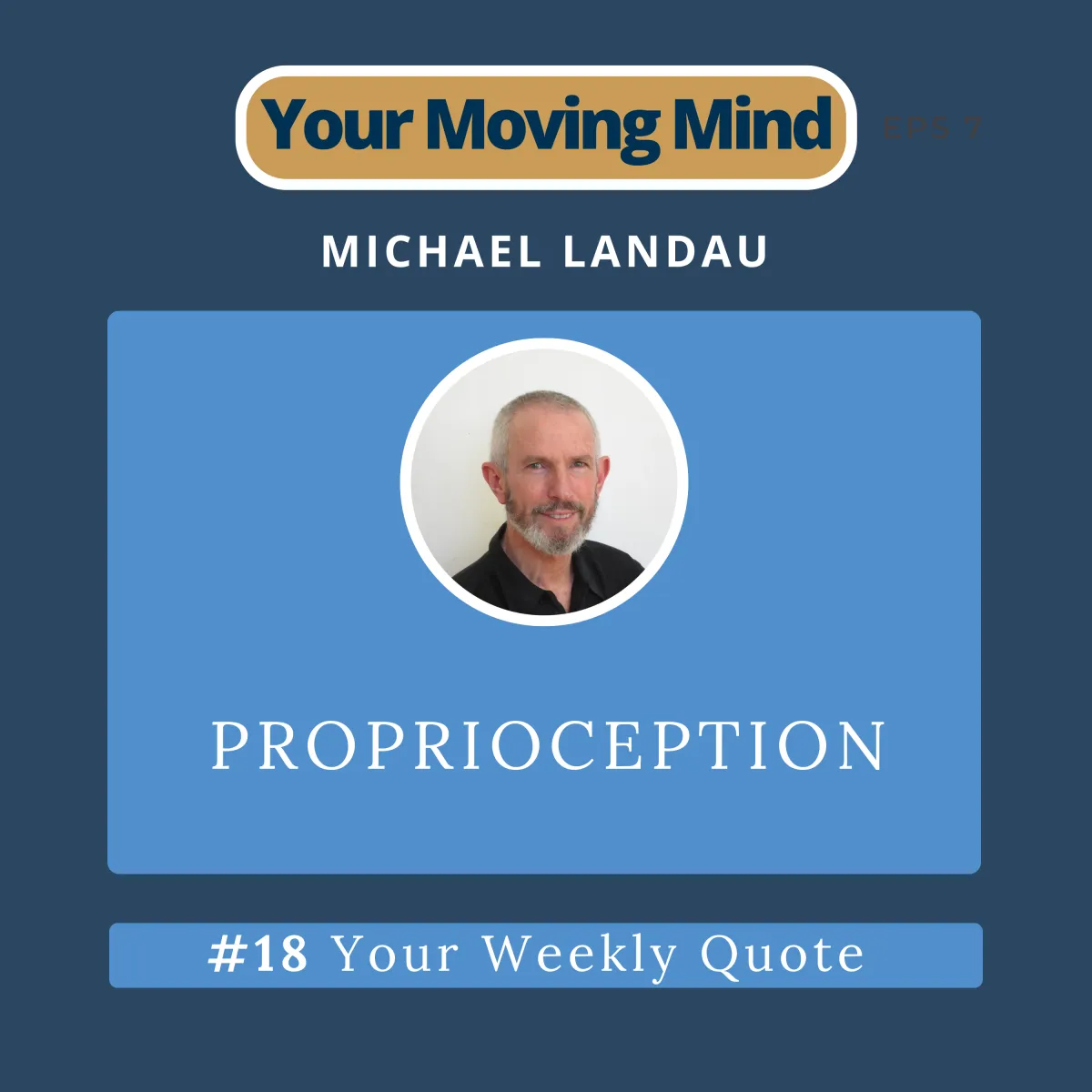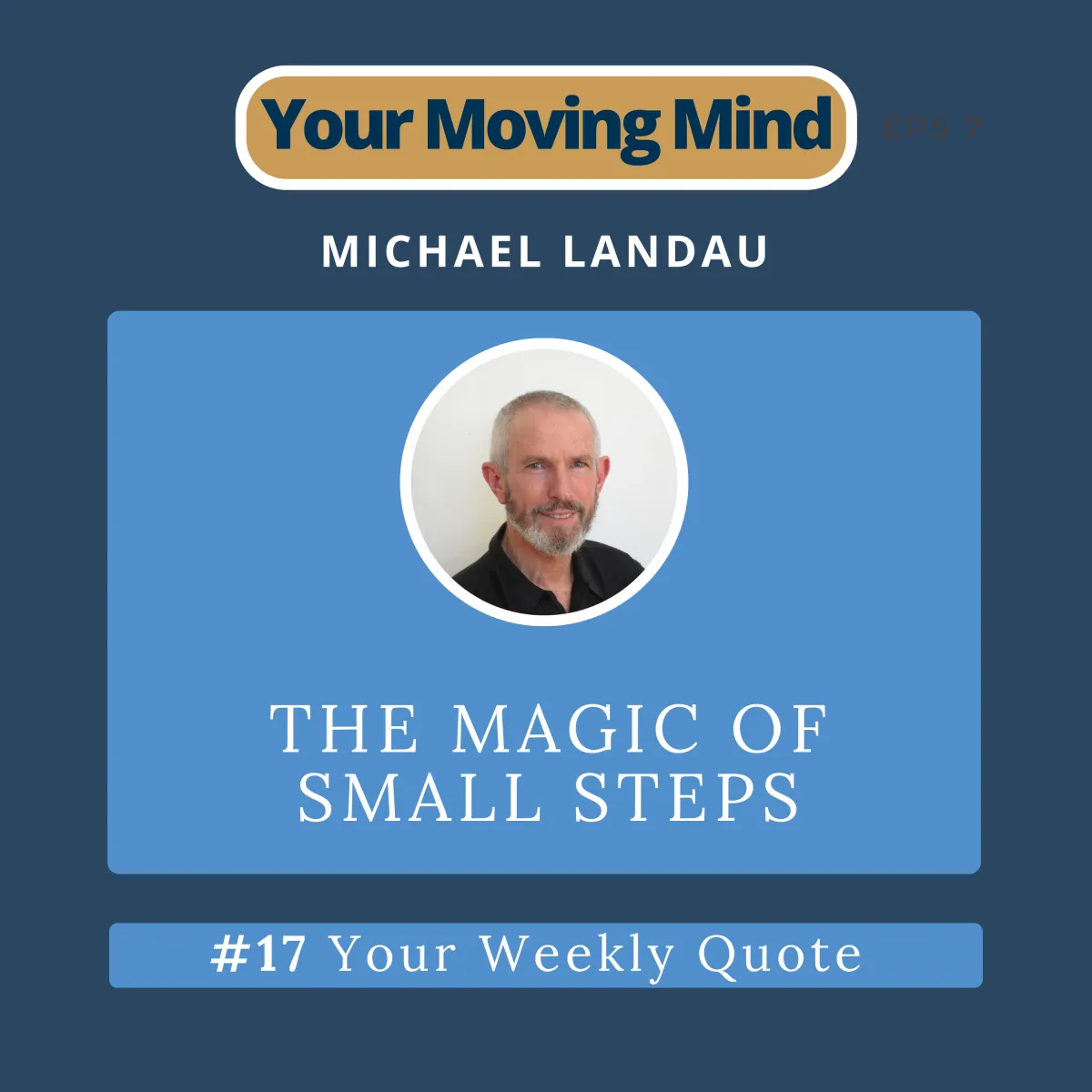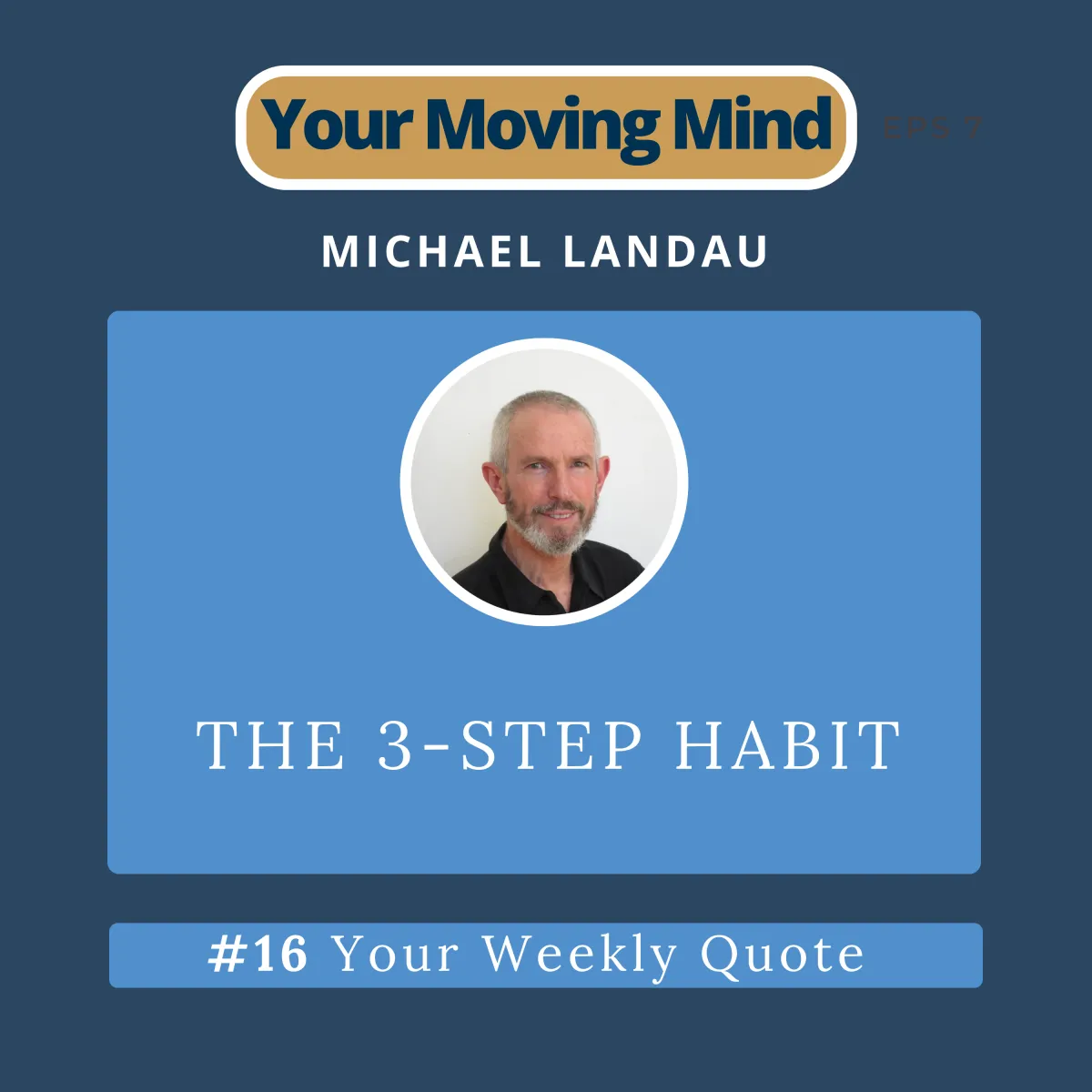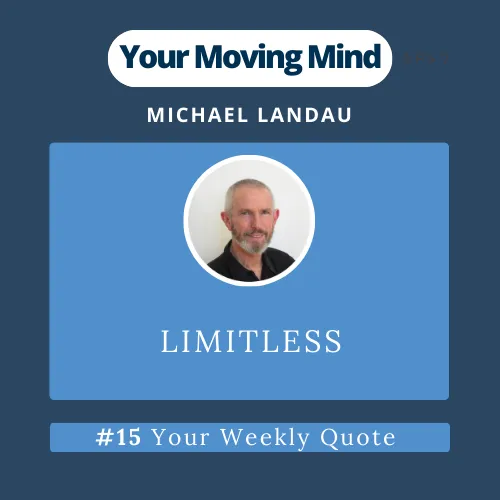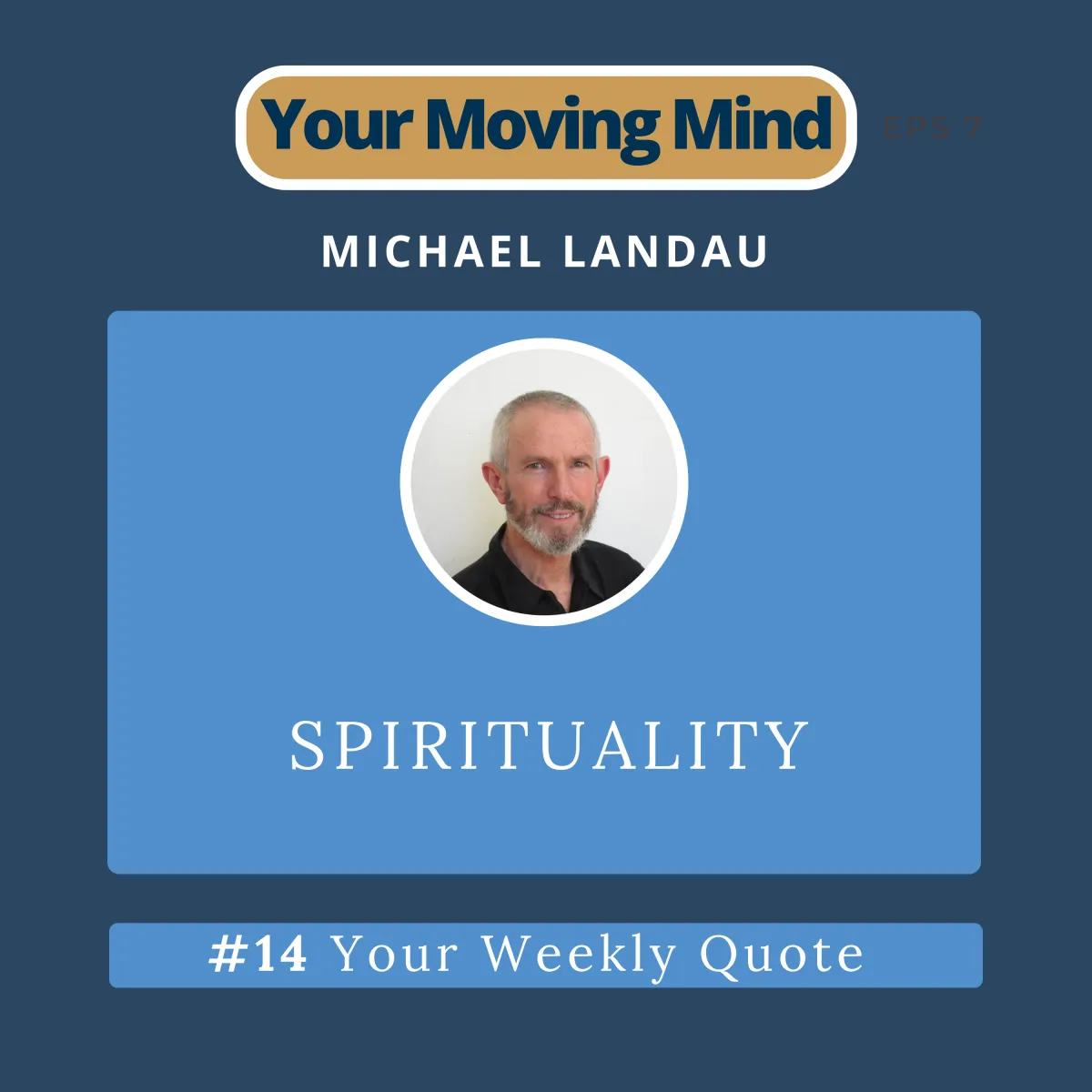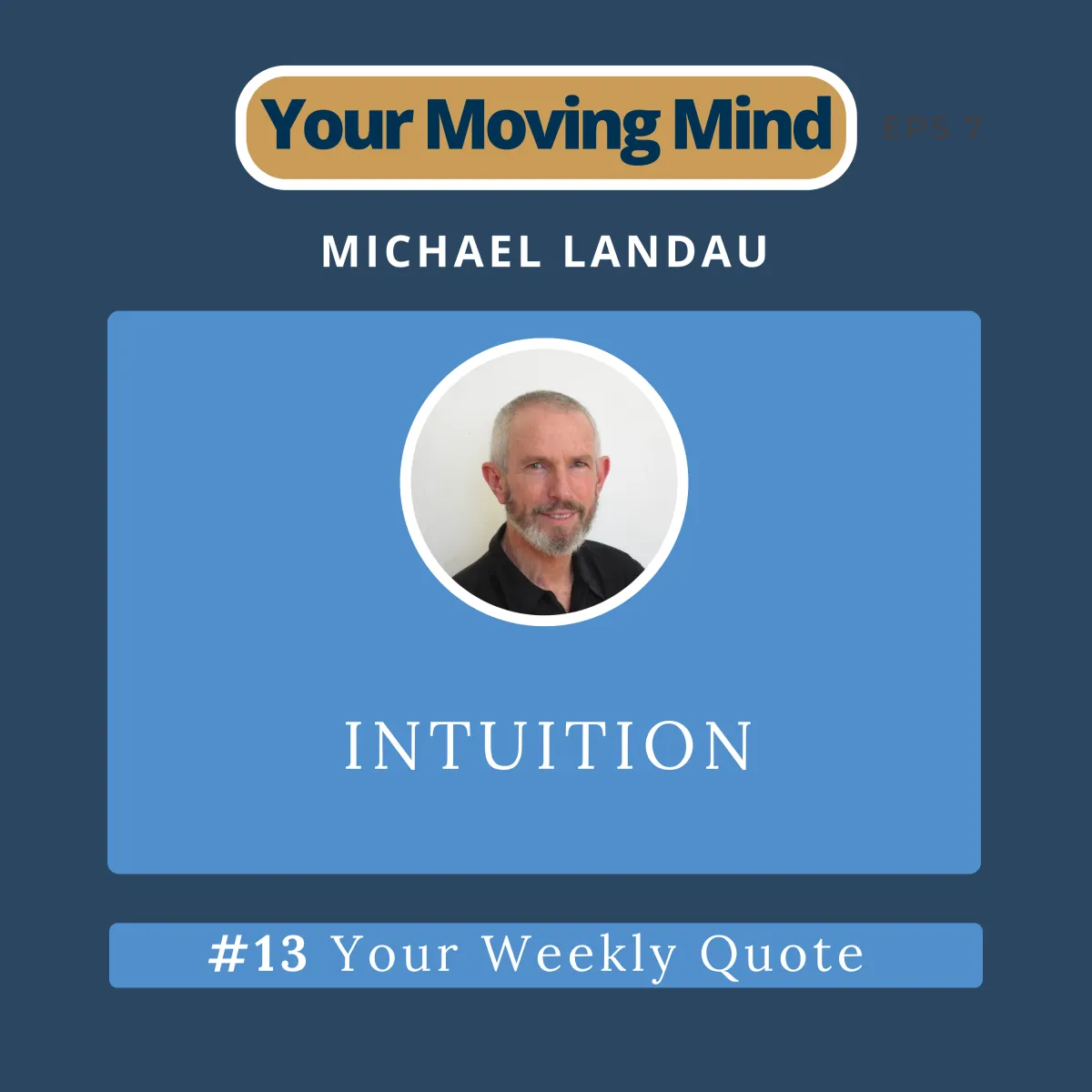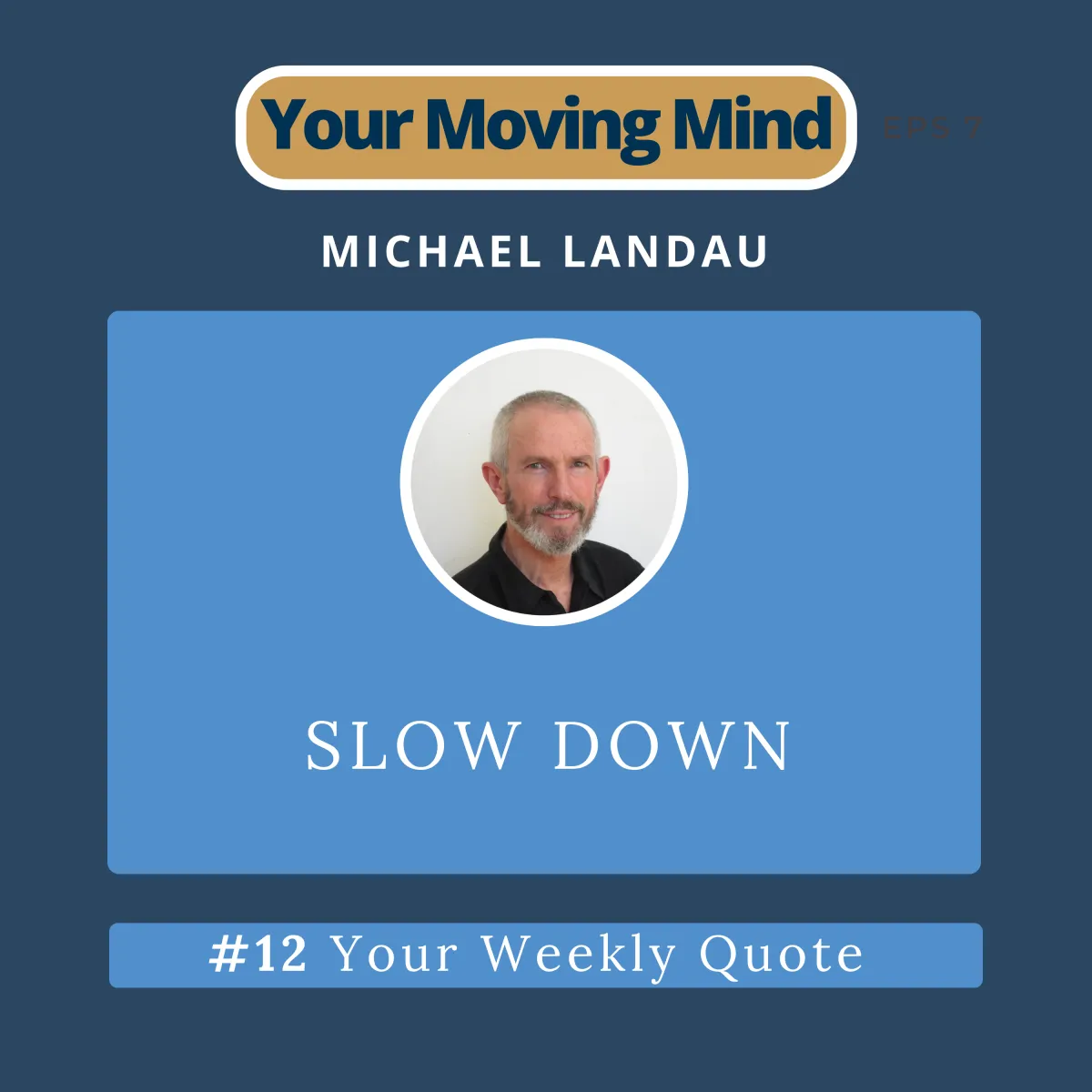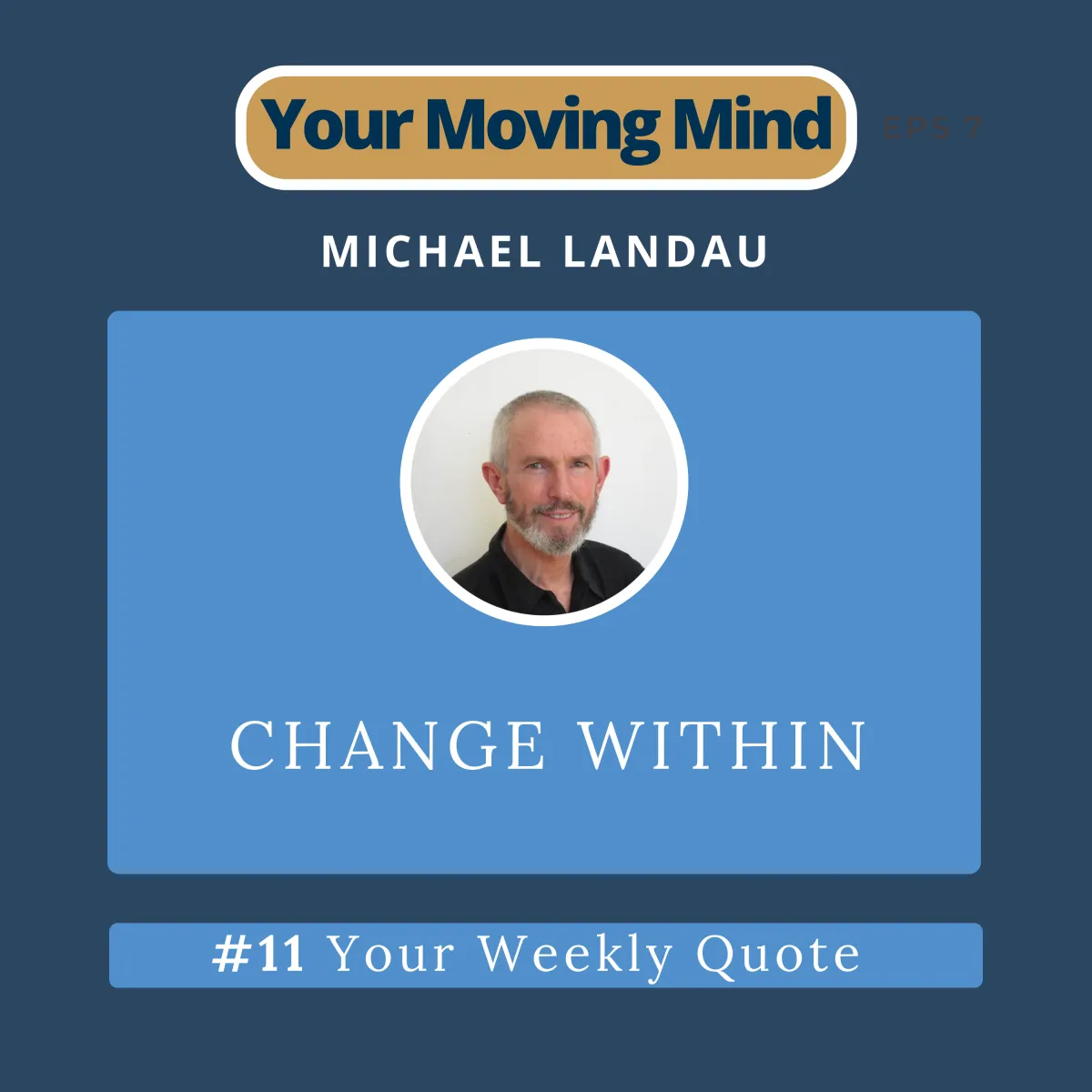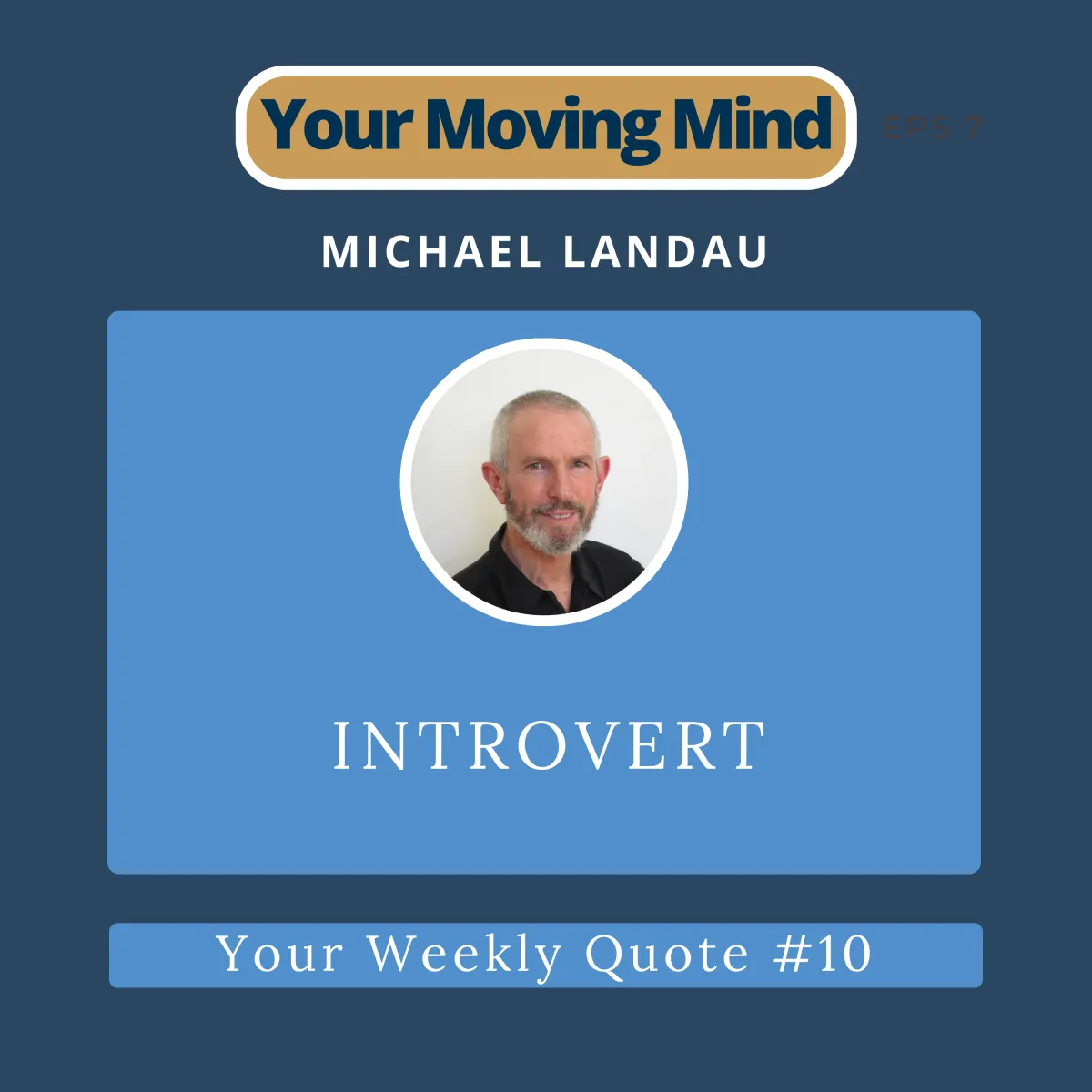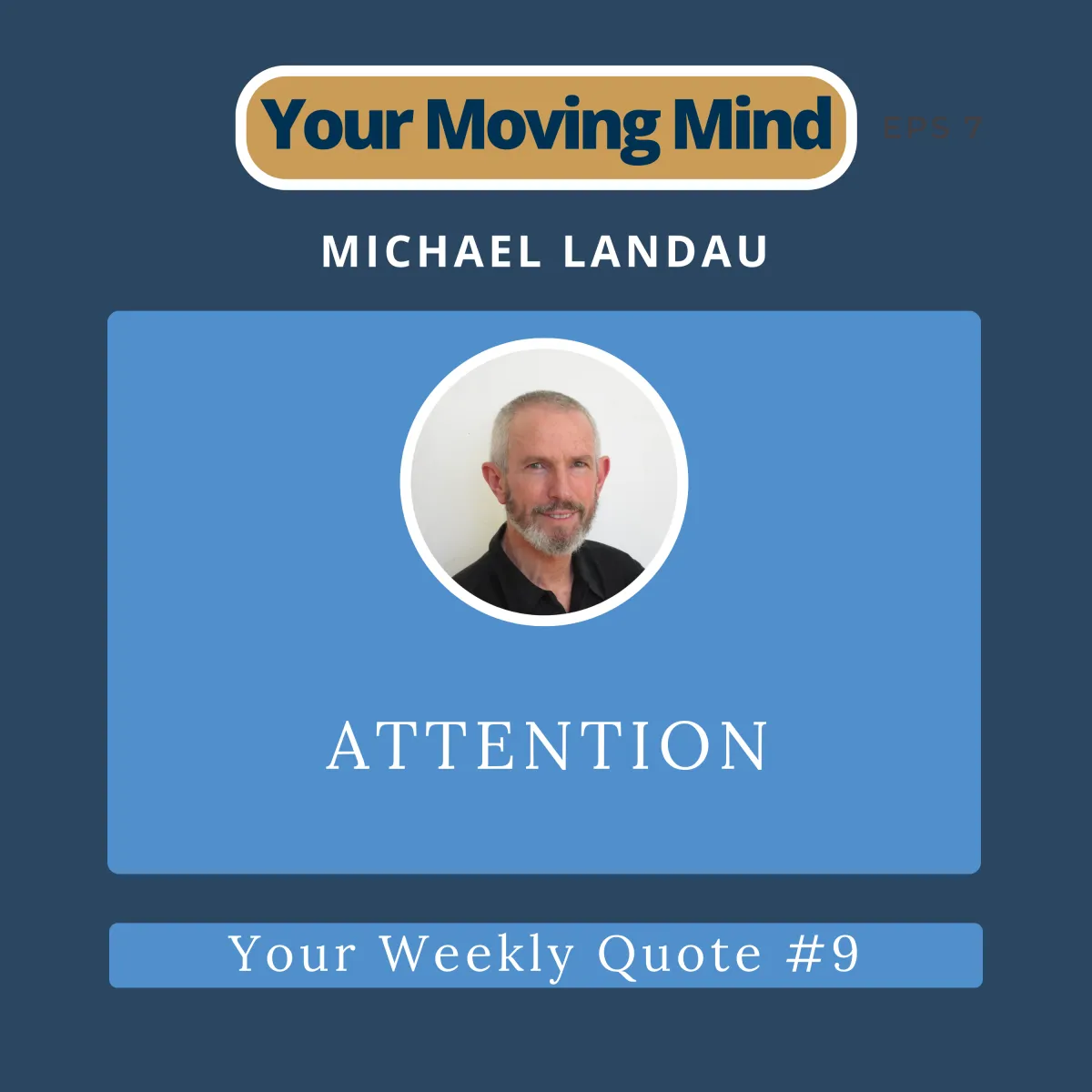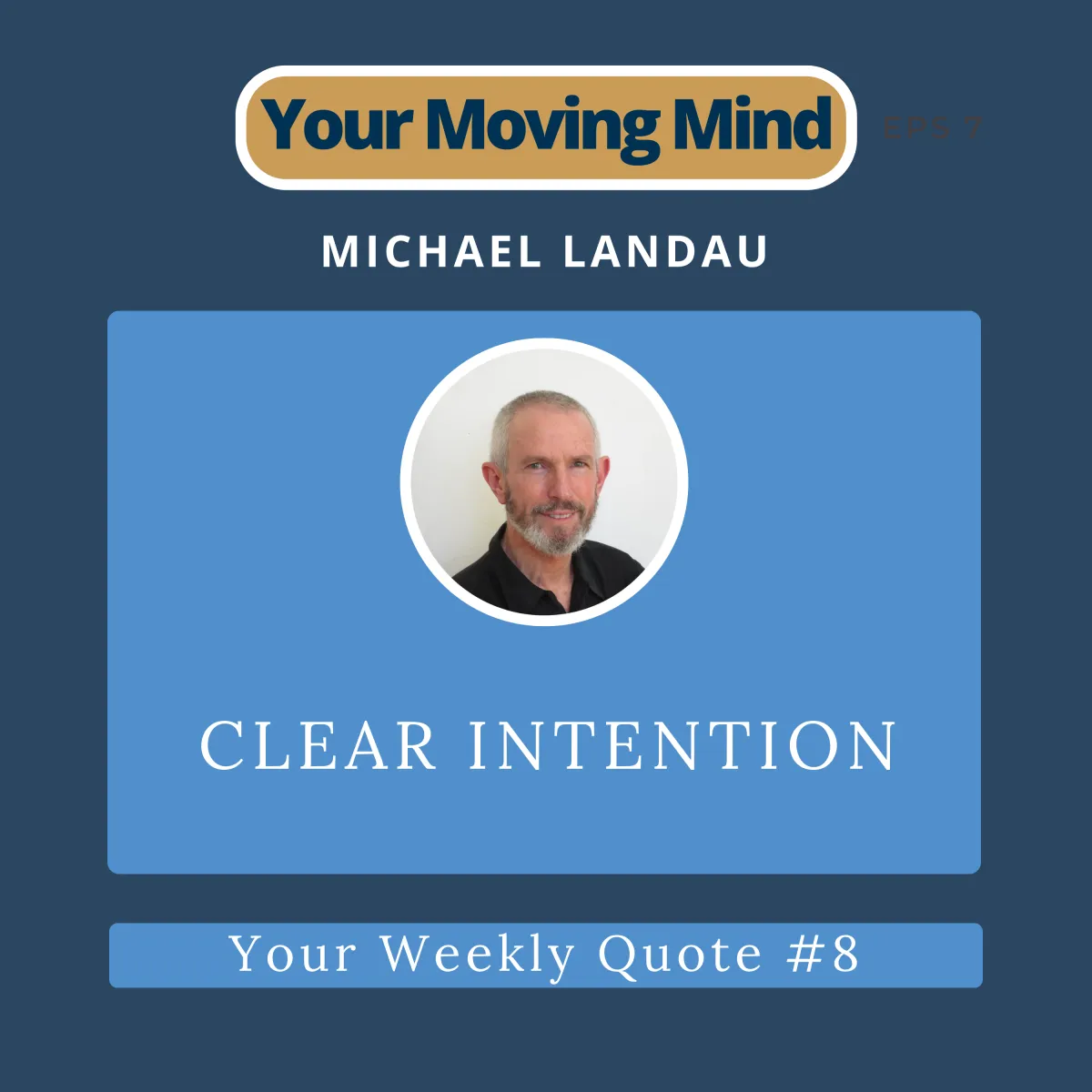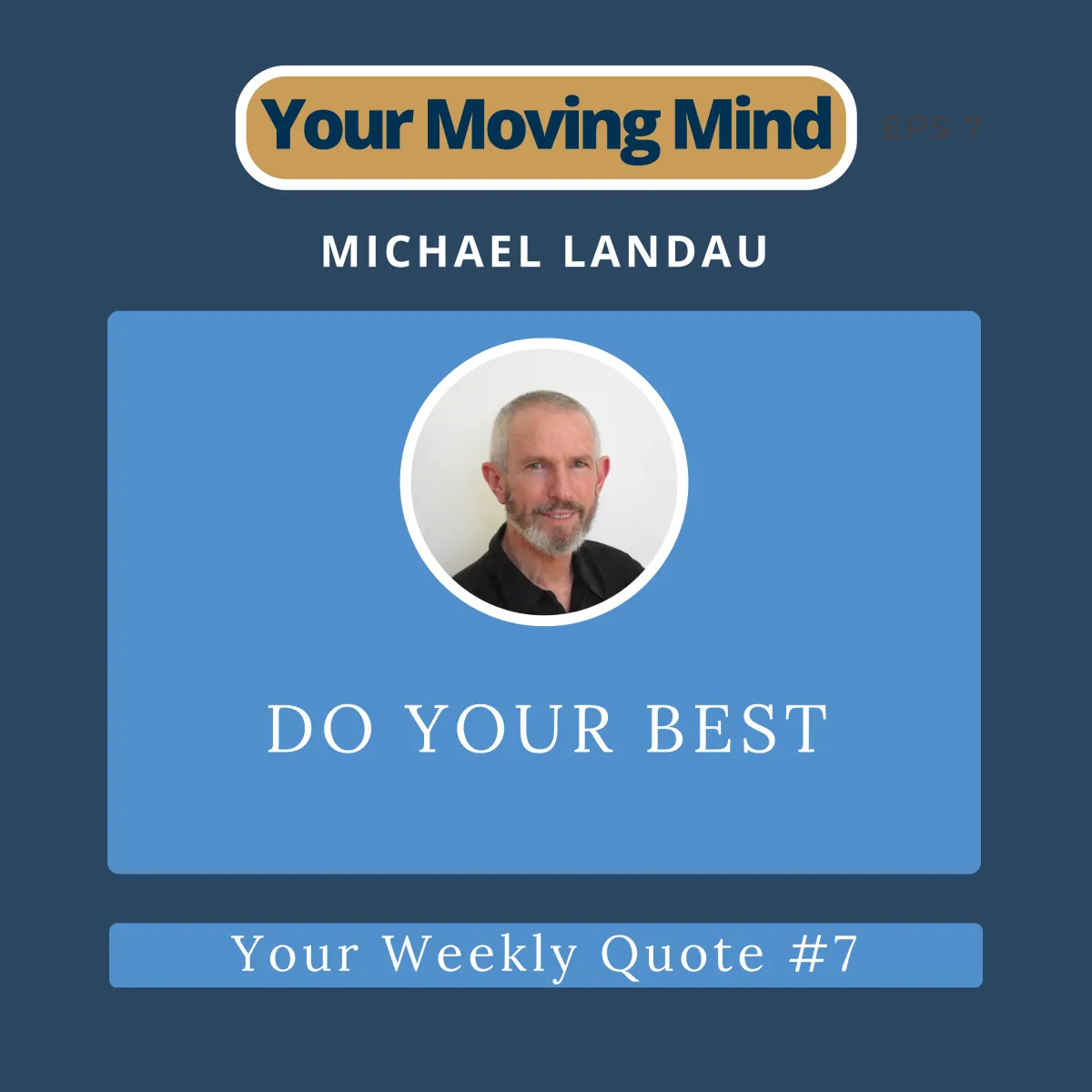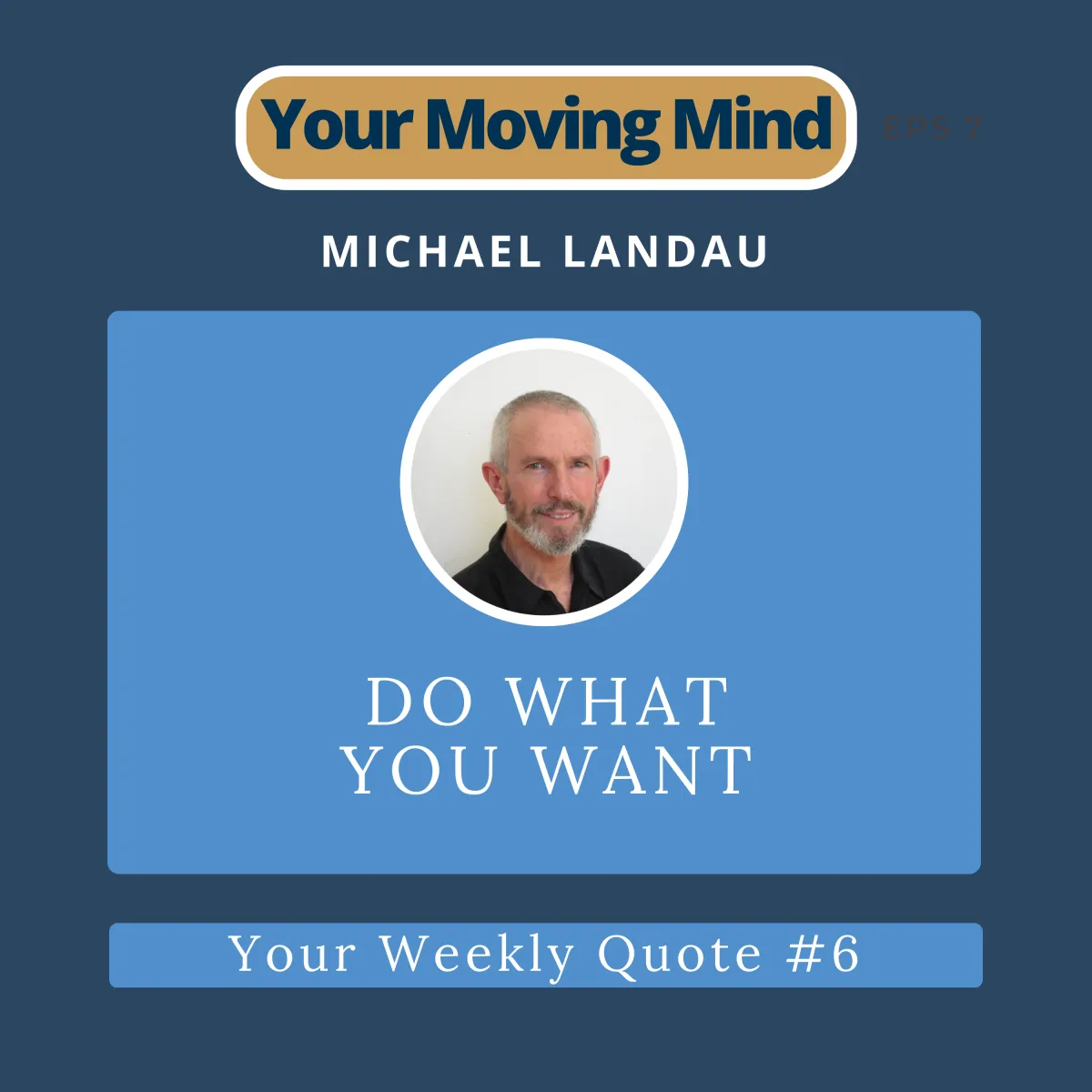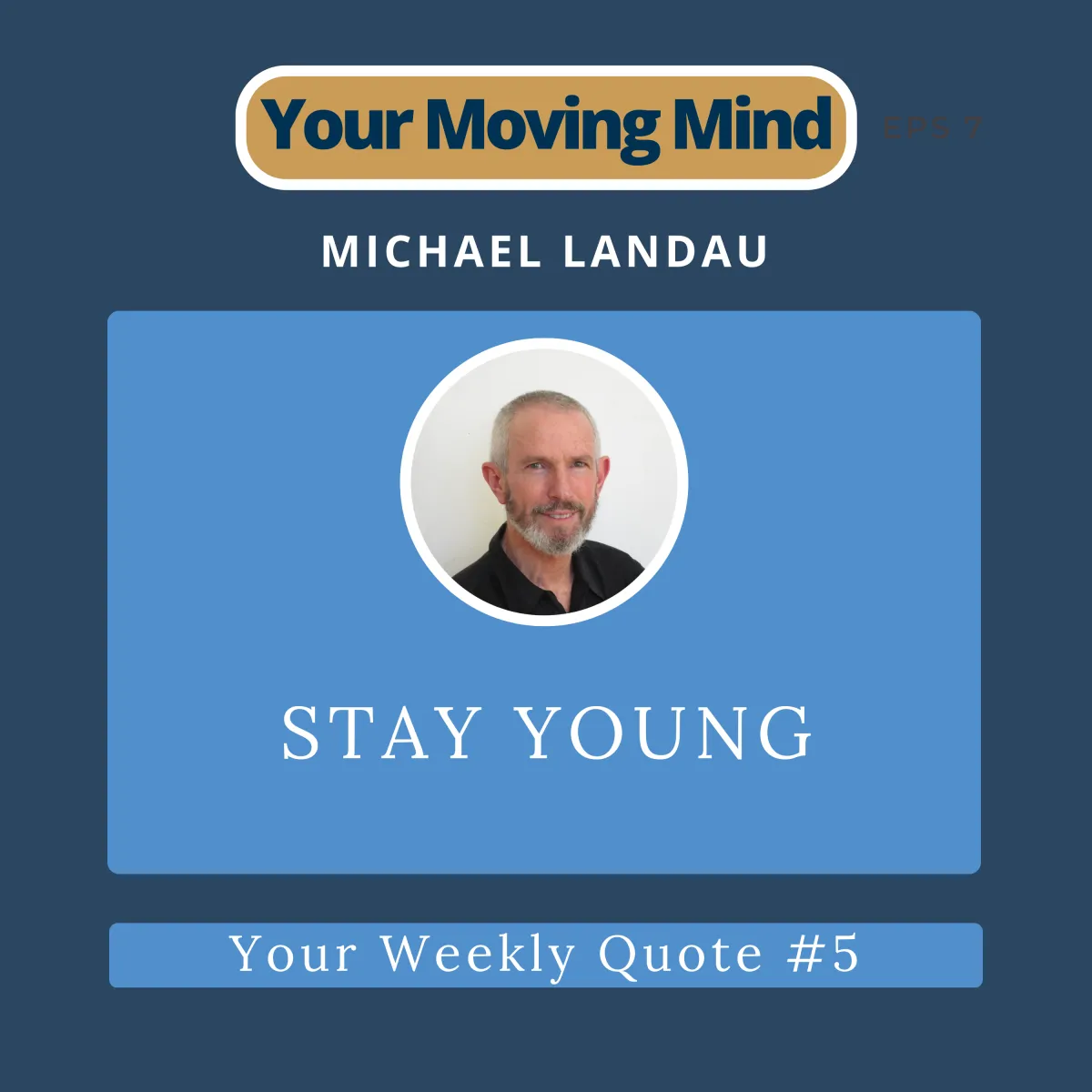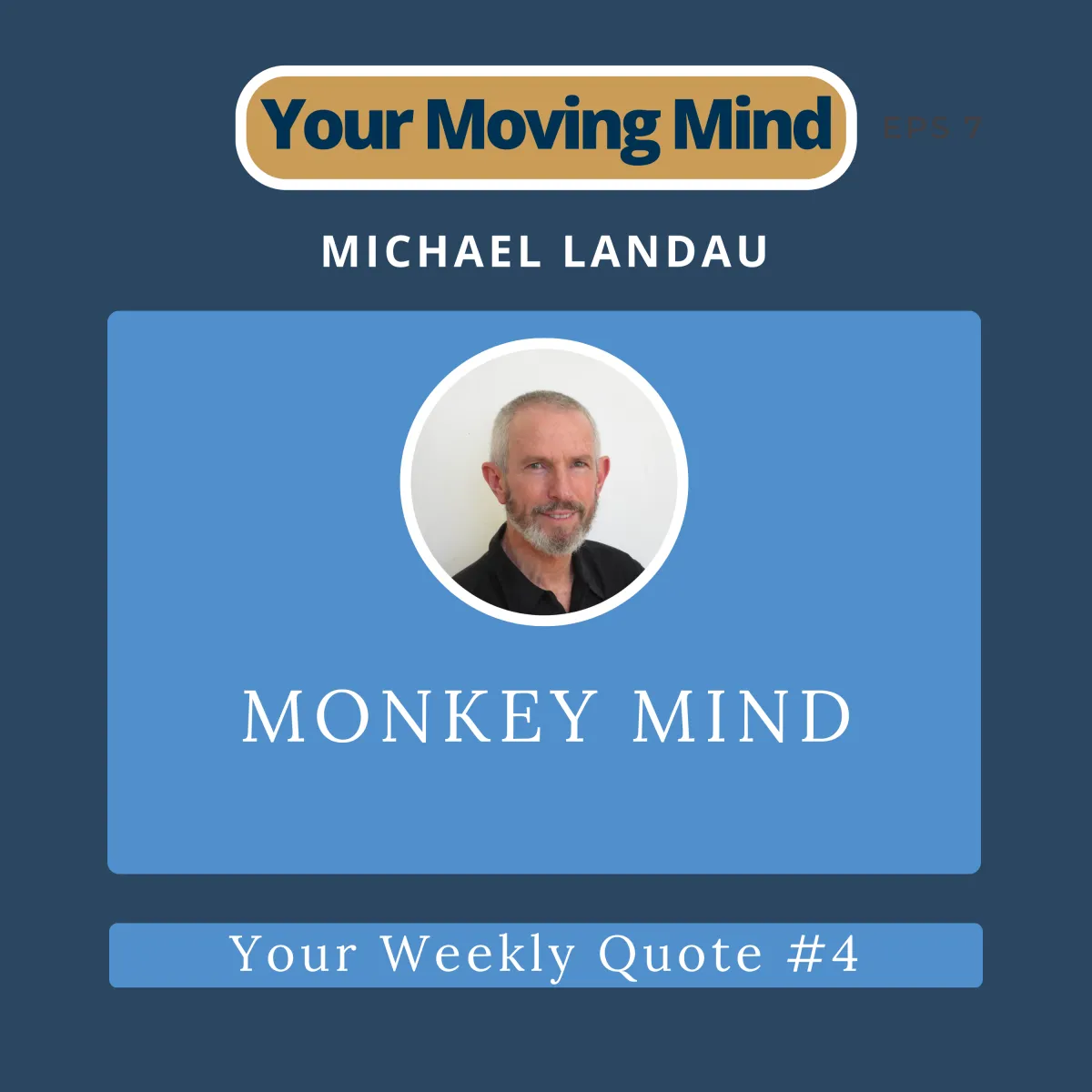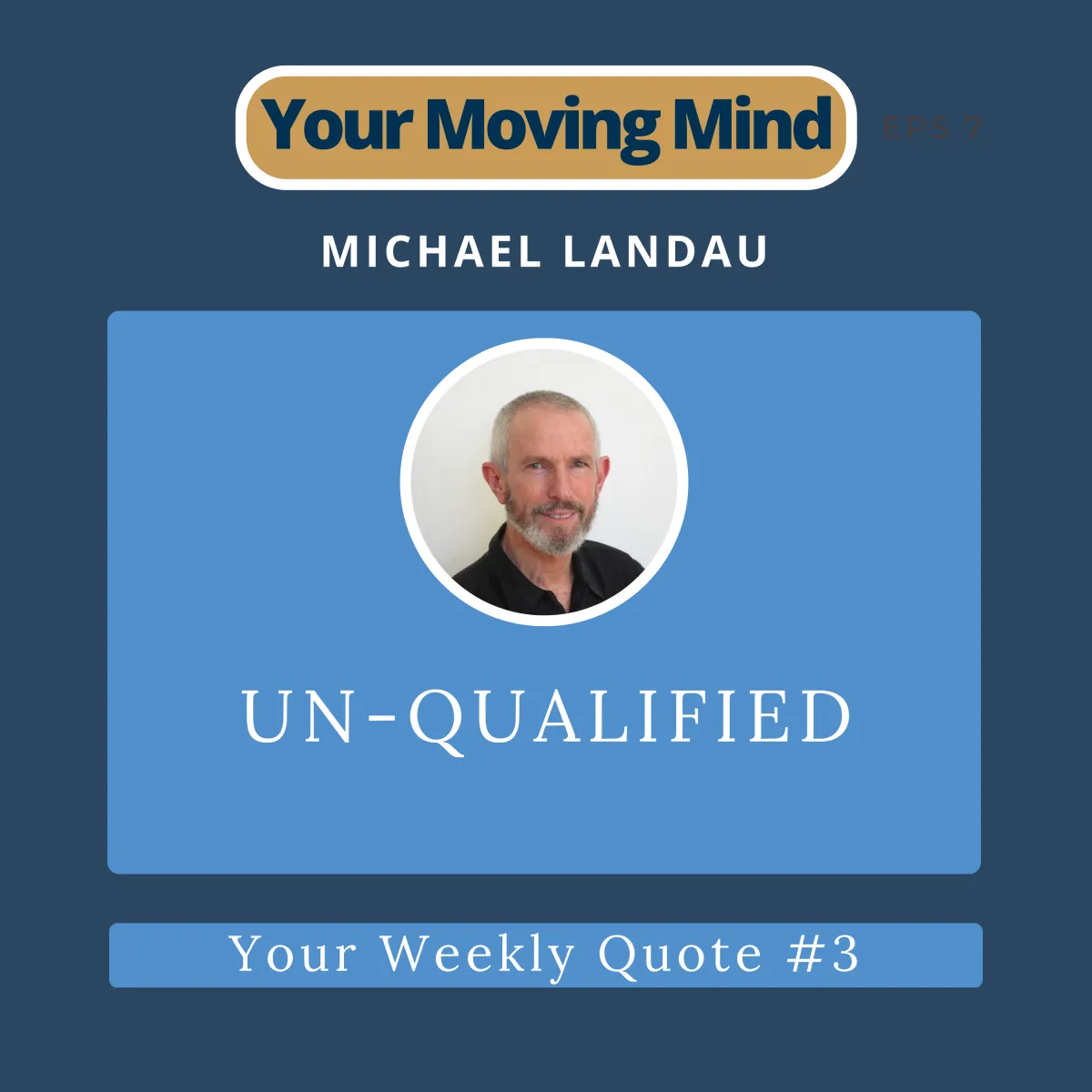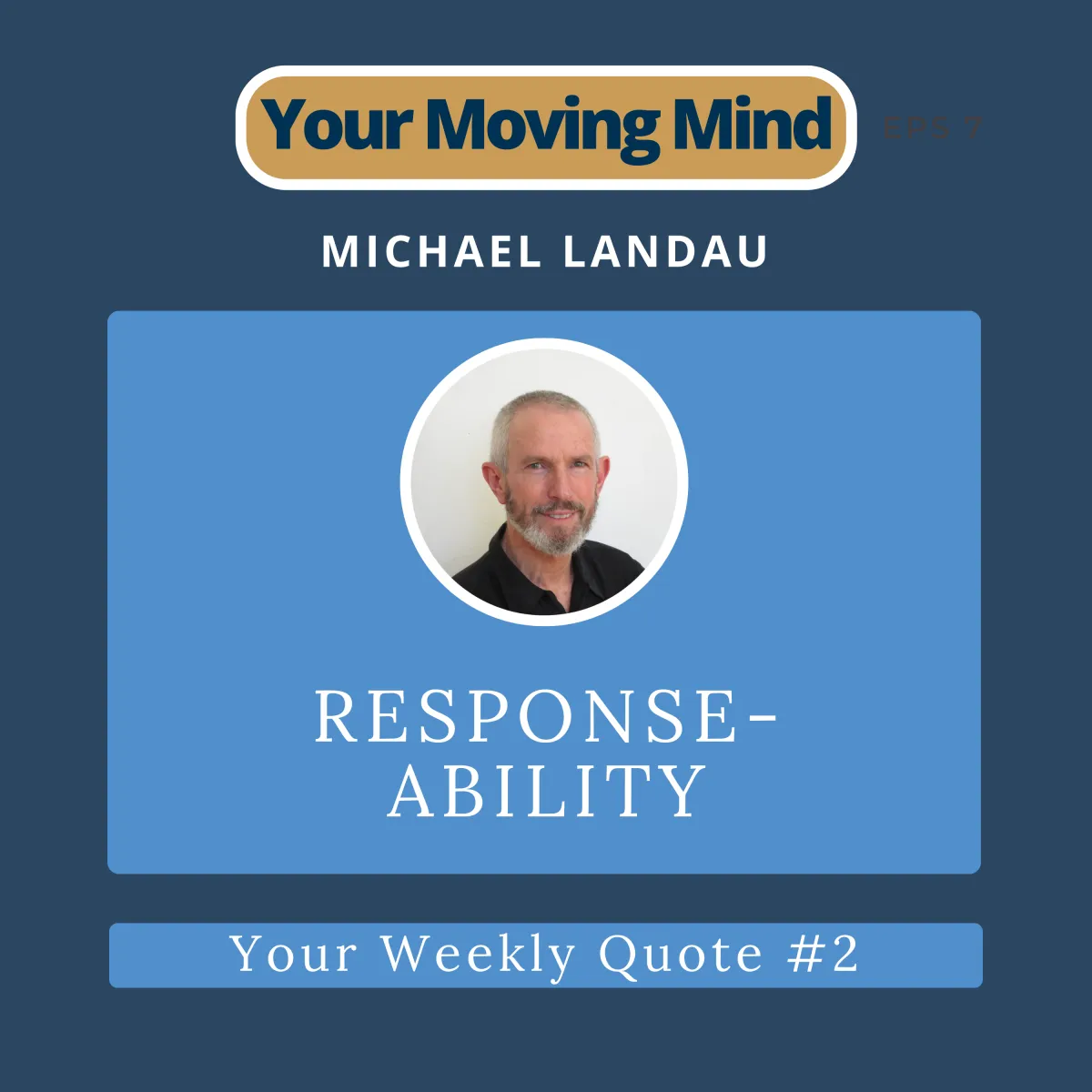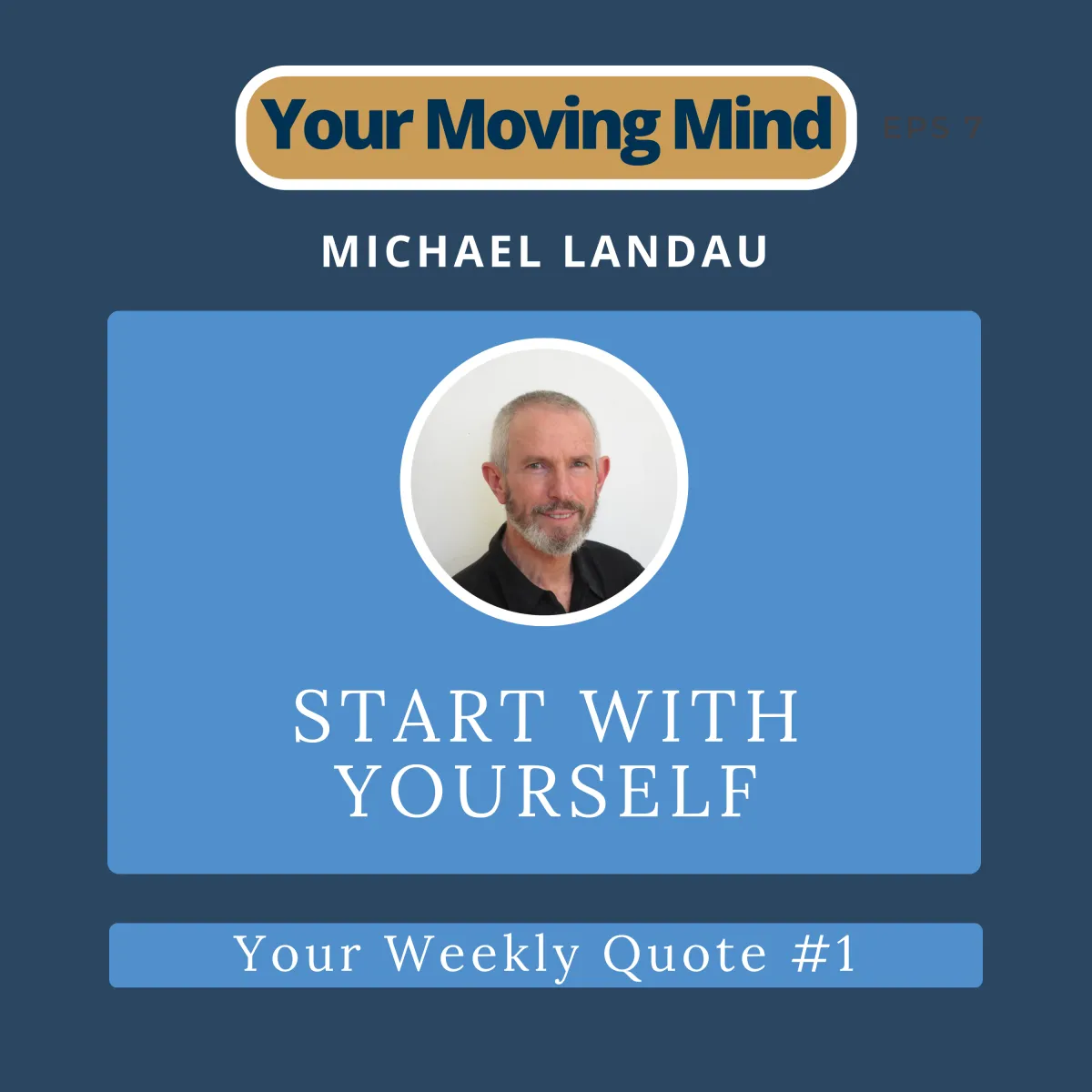Your Moving Mind
Podcast
Hosted by Michael Landau
Amazon Music:
https://music.amazon.co.uk/podcasts/5c42224e-820e-410b-abf3-f1b599c5d54b
YouTube:
https://www.youtube.com/playlist?list=PLInQizWDXdTkqKVtOQyegN2dXXOFT-qB5
Spotify:
https://open.spotify.com/show/4UypseA7maoI73xbi6nU8t?si=3a256d37b7ae4905
Music (former Google Podcasts):
https://music.youtube.com/playlist?list=PLInQizWDXdTkqKVtOQyegN2dXXOFT-qB5&si=kAggwogeug1PUTp9Apple
Podcasts:
https://podcasts.apple.com/us/podcast/your-moving-mind/id1680523850
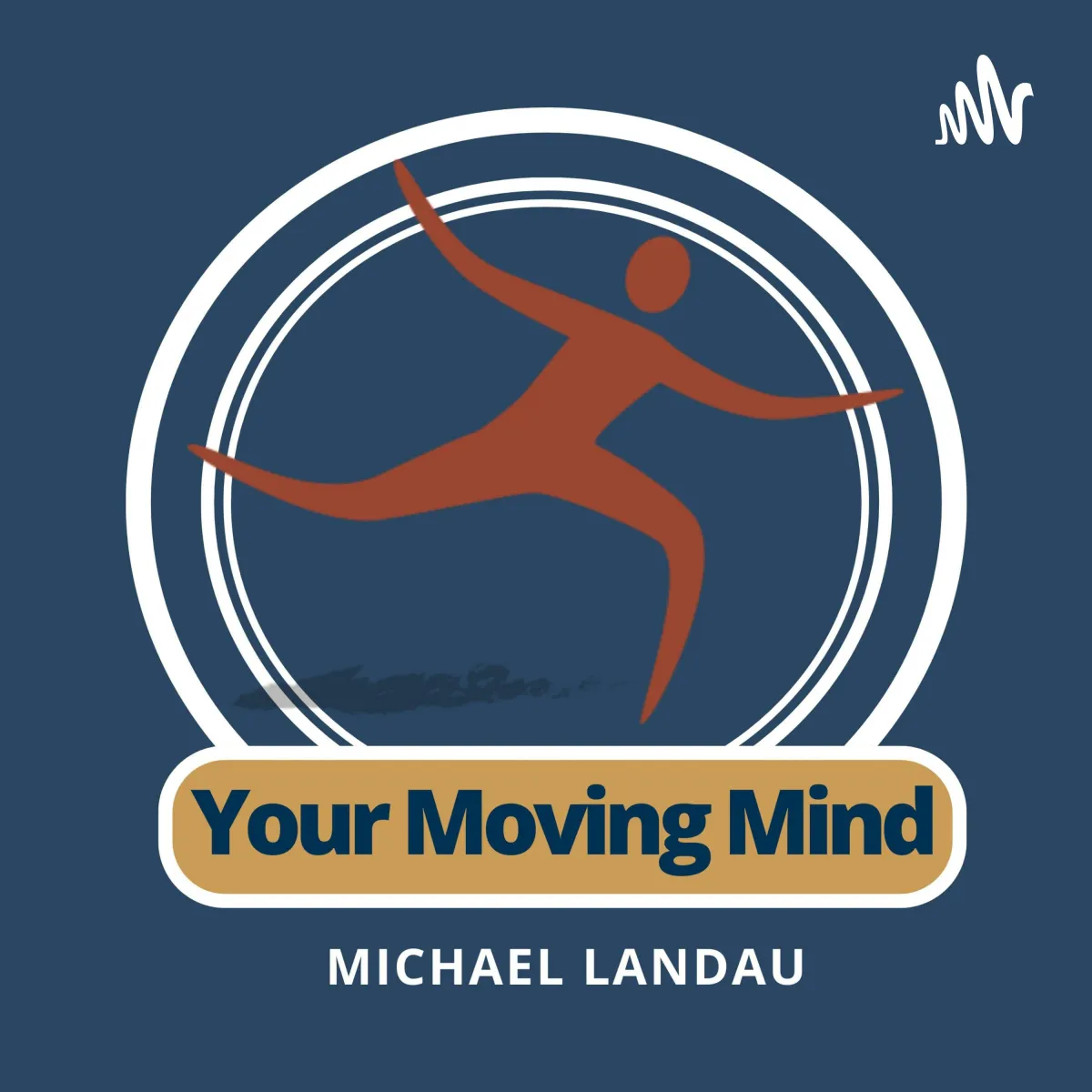
# 30
A set of instruction as to how we should hold ourselves upright has become a cultural imperative. And it’s not doing us much good. In this episode we’re taking a critical look at what a “good posture” means, what it doesn’t mean, and what we can do to get closer to it.
Michael’s YouTube channel has quite a few videos with an alternative approach to improve our posture, and more importantly, the way we use our bodies to move around and get things done.
Go to Michael’s YouTube channel:
https://www.youtube.com/@persistent-growth
# 29
Science is catching up with what Moshe Feldenkrais claimed 75 years ago. Neuroplasticity has become an established fact: Our brain can change and grow at any age. What changes it can be summed up with one word: Learning.
In this episode Christine and I discuss different ways in which we can make this happen: How we can keep our brain young and active by turning on the learning mode.
These are the books we mention in the episode (the links go to Amazon.com, but you can easily find them elsewhere if you prefer):
Drawing on the Right Side of the Brain, by Betty Edwards
The Brain that Changes Itself, by Norman Doidge
The Brain’s Way of Healing, by Norman Doidge (this book has two chapters on Moshe Feldenkrais and the Feldenkrais Method®)
Atomic Habits, by James Clear
Check out Michael’s daily three-minute Mindful Movement practice:
https://www.persistent-growth.com/
Follow Christine:
https://motionexploration.com/
# 28
MINDFUL SENSUALITY (Special Guest: Candia Raquel)
Today’s guest, Candia Raquel, is a Mexican sensualist, scientist, artist and woman. She is the host of The Sensual Sessions Podcast; she enjoys contemplating trees and drinking tea. Candia is dedicated to helping workaholics overcome inhibition and embody sensuality through somatic movement.
Candia invites us to reconnect with the sensual experience of pleasure through the three P’s: Posture, Presence and Pleasure. We could all use this reminder to rediscover the joy in everyday experience.
Candia Raquel’s web page:
https://www.candiaraquel.com/
Candia Raquel’s Instagram:
@candiaraquel
These days the doors are open to her wonderful course, Pelvic Floor Awakening. To learn more and sign up, click https://www.candiaraquel.com/a/2148017211/dpXKXdE6
# 27
How We Deal with Pain (With co-host Christine Germain)
Pain is a message. It signals that we must change something.
Our work with mindful movement and the Feldenkrais Method ® offers us some unique and effective ways to respond to this message.
My conversation with my co-host, Christine Germain (who had more than her fair share of pain) sheds some light on the ways we can move out of pain by creating a learning space, changing habitual patterns and finding more efficient and potent ways to be in the world.
Check out Michael’s daily three-minute Mindful Movement practice: https://www.persistent-growth.com/Follow
Christine:
# 26
The Feldenkrais® Festival
Special guest: Frederick Schjang
In this episode we talk about Feldenkrais®, and especially how the method helps to create an inclusive environment in Frederick’s upcoming grand event: The Feldenkrais® Festival. The festival is the epitome of Frederick’s broader social and cultural world view. It makes a point of including and welcoming all sexual preferences, genders, races and other distinctions that too often create separation and distance.
A native of Harlem with roots in the Caribbean, Frederick Schjang is a nationally recognized fitness educator and innovator who specializes in the Feldenkrais® Method, Pilates, and Flexibility Training. His semi-annual LGBTQA Feldenkrais Festival has become a must-attend event for fitness and wellness enthusiasts and, since moving to Zoom in the wake of the Covid-19 pandemic, attracts thousands globally.
His current projects include his own online Feldenkrais Method membership program that features classes and workshops taught by top Feldenkrais Method® teachers around the world.
The next Feldenkrais® Festival is around the corner
(November 11-17, 2024).
You’re just in time to sign in and join us: https://www.feldenkraisfestivals.com/And
You can follow Frederick’s activities on his home page:
# 25
FROM PAIN TO MASTERY
Special guest: Christine Germain
Today’s episode is the first long-form conversation in this podcast.
I’m welcoming a very special guest, my dear friend and colleague Christine Germain. She shares with us her own journey of healing with the Feldenkrais method, her trials and tribulations as a dancer and choreographer, overcoming pain and injury, and how all this shaped her thinking and her ways of working with her clients and students today.
Christine is a movement explorer, choreographer, Pilates instructor and Feldenkrais practitioner.
Follow Christine:
Instagram:
@motionexploration
# 24
THE POWER OF PAUSE Your Weekly Quote
You deserve a pause.It's not just that you can take a rest after working hard. You don't just pause to rest. You pause to learn.
Taking frequent pauses enhances learning. The pauses are where you integrate what you've been learning. Your brain doesn't pause.
We have been trained to push through, make more effort and never stop. On top of being very unkind to ourselves, it is not efficient way to move forward.
Treat yourself kindly. Take a pause.
# 23
HOW TO MAKE A HABIT STICK
Your Weekly Quote
Why is it so hard to stick with a habit evem when we really want it in our lives?
Why is it so hard to get rid of a habit even if we know it's bad for us?
Our habits are grooved into our brain. it takes time to create one, and once it's created, it is quite resistant to change. It helps to know what makes a habit tick, how it works and what it is made of.
This episode goes into the 3 main components of every habit and how you can tweak them to become the master of your habits.
# 22
Flow
Your Weekly Quote
"Flow is technically defined as an optimal state of consciousness where we perform our best and feel our best."
Steven Kotler
The flow state has been researched quite a bit in the last few decades. You can actually see it in a brain scan. How does this relate to the exploration of movement?
Sometimes, when engaging in Mindful Movement, we can find ourselves in a state of Flow. We are completely absorbed by the present moment, we are focused and calm. The mental noise disappears. We are one with the movement and the sensation it evokes.
# 21
Exploration
Your Weekly Quote
"What if we looked at movement as an exploration, an art form, poetry in motion? What if we didn't look at it as something we had to do and instead as something we were blessed to be able to do?
Karin Dimitrovova
How do we learn? We’ve been tamed into a certain way of learning: There’s an authority that knows the right answers and knows what we should be learning at any moment. We follow and obey.
This is not how we learned as babies, when we went through the hugest learning process we’ll ever experience. It was a completely different learning process.
In this episode we’re looking into that forgotten way of learning through exploration.
# 20
Spiritual Exercise
Your Weekly Quote
"It's often said that exercise is good for the mind and body, but did you know it can also be good for the soul?"
My short explorations in movement seem like simple and straightforward body-work. But at the back of my mind I’m always aware of the deeper foundation to everything we do:
We are on a spiritual journey, a journey of learning and growth. Moving mindfully is an essential tool that makes the journey possible.
# 19
Growth Mindset
Your Weekly Quote
"If you change your mindset, things to start to change in the material world around you."
Dr. Tara Swatt
This is a common distinction in the coaching world: Growth Mindset vs. Fixed Mindset. This distinction is quite relevant to my work with Mindful Movement, which implies the ability of the brain to change, learn and grow at any age. To keep our mind-body young and active we must cultivate a Growth Mindset, and take regular steps to keep growing.
# 18
Proprioception
Your Weekly Quote
"Close your eyes, and then touch your right forefinger to your left elbow tip. Easy? How did you do it? Somehow you knew where the end of your finger was and you also knew the position of your left elbow. This sense is known as proprioception and it’s the awareness we have of where each of our body parts is located in space."
Christian Jarrett (BBC.com)
We have five senses, right?Of course not. And today I want to highlight a forgotten and ignored sense that is at the foundation of our ability to move around and do things with grace and precision: Proprioception.
It’s the sense (or a group of senses, depending on which expert you ask) we explore thoroughly in the first years of our lives. Without it, the whole process of child development would be impossible.
In Feldenkrais® classes and in my Persistent Growth® sessions we use this sense to explore ourselves in movement. You can close your eyes and still know where your body parts are and what they’re doing. How do you know that?
Proprioception.
# 17
The Magic of Small Steps
Your Weekly Quote
"When you take a short moment to create a learning space every day, you are in a process of change. You are improving.The steps are small but constant."
Michael Landau
Some people go through extreme endurance competitions, cross snowy mountains on foot, swim in freezing ocean waves, run, cycle, climb and overcome horrendous challenges, and are transformed by the experience.I can appreciate this type of journey, even admire it. But most of us ordinary humans try to avoid suffering and won't go for that kind of challenge. Does this mean we're lazy or mediocre and that we have no interest in improvement, transformation and growth? I don't think so.
There are other ways, and the path I follow and teach is an option. It won't make headlines, it won't win you trophies, but it will keep you on the journey nonetheless. In this episode I'm taking a closer look at the MAGIC OF SMALL STEPS.
# 16
The Three-Step Habit
Your Weekly Quote
"If you do not deliberately form good habits, then unconsciously you will form bad ones."
Albert Gray
Habits are necessary and we all have them. You want to improve, learn, grow, move better, be more efficient and powerful in your actions and interactions? Check your habits.
In this short episode I describe the small and powerful 3-step habit I’m trying to implement in my own life and teach my students: A habit that only takes a few seconds each time, but can revolutionise your life if you stick with it.
# 15
Limitless
Your Weekly Quote
"All behavior is driven by belief, so before we address how to learn, we must first address the underlying belifes we hold about what is possible."
Jim Kwik
in his book
Limitless
# 14
Spirituality
Your Weekly Quote
"...All elements of life have a spiritual aspect and a material one. When we remember this, all manner of miracles and manifestations are possible."
From the Mystical Shaman Oracle Deck by Alberto Villoldo, Colette Baron Reid, and Marcela Lobos
Are you a spiritual person?Does your spirituality include your body? If not, you’re missing something…
# 13
Intuition
Your Weekly Quote
"You don't come up with E=mc2 if you don't know anything about physics. But neither by studying physics."
Michael Landau
Is intuition some kind of magic that pops up out of nowhere? Intuition is knowledge you come up with
in your area of expertise. It is how a creative mind functions.
# 12
Slow Down
Your Weekly Quote
"Slowing down to attend to the details of your sensory experience gives you tools to explore the space between intention and action."
Moshe Feldenkrais
The space between intention and action is where learning, change and growth can happen. But first we must be able to
perceive that space. It can be very small.
There is only one way to open that gap to be able to maneuver in it: SLOW DOWN. Slow down and pay attention.
# 9
Attention
Your Weekly Quote
"Anyone who acts without paying attention to what he is doing is wasting his life."
Nadia Boulanger
Boulanger taught her brilliant students (some of the most prominent composers of the 20th century) to pay attention. She thought of it as the most valuable part of her teachings.
I believe it applies to you and me, not just to world-famous composers.
I teach my students to pay attention to themselves in movement. It’s a major tool in being present and able to learn and improve.
Take a few moments to do this exercise in attention with me.
# 8
Clear Intention
Your Weekly Quote
"Be sure your intention is clearly present in your movement.The movement organises itself when your intention is clear."
Moshe Feldenkrais
A little about what it means to have a clear intention, with a short Mindful Movement exploration, Feldenkrais style, to demonstrate it.
# 8
Clear Intention
Your Weekly Quote
"Be sure your intention is clearly present in your movement.The movement organises itself when your intention is clear."
Moshe Feldenkrais
A little about what it means to have a clear intention, with a short Mindful Movement exploration, Feldenkrais style, to demonstrate it.
# 7
Do Your Best
Your Weekly Quote
"Do the best you can until you know better. Then when you know better, do better."
Maya Angelou
The deep meaning I’m getting from today’s quote is this:What I’m doing today is good enough. Tomorrow I’ll do better, which doesn’t mean that what I did today was too little.
# 5
Stay Young
Your Weekly Quote
"Anyone who stops learning is old, whether at twenty or eighty. Anyone who keeps learning stays young. The greatest thing in life is to keep your mind young."
Henry Ford
You must keep learning to maintain a young mind, but also, what you learn must be meaningful for you. It must serve a purpose.
# 2
Response-Ability
Your Weekly Quote
"Between stimulus and response there is a space. In that space is our power to choose our response. In our response lies our growth and our freedom."
Viktor E Frankl
First notice that space. Then make it a little wider, so you can find the choices in it. That's how we become freer.
